Special Report
The Most Endangered Animals in Every State
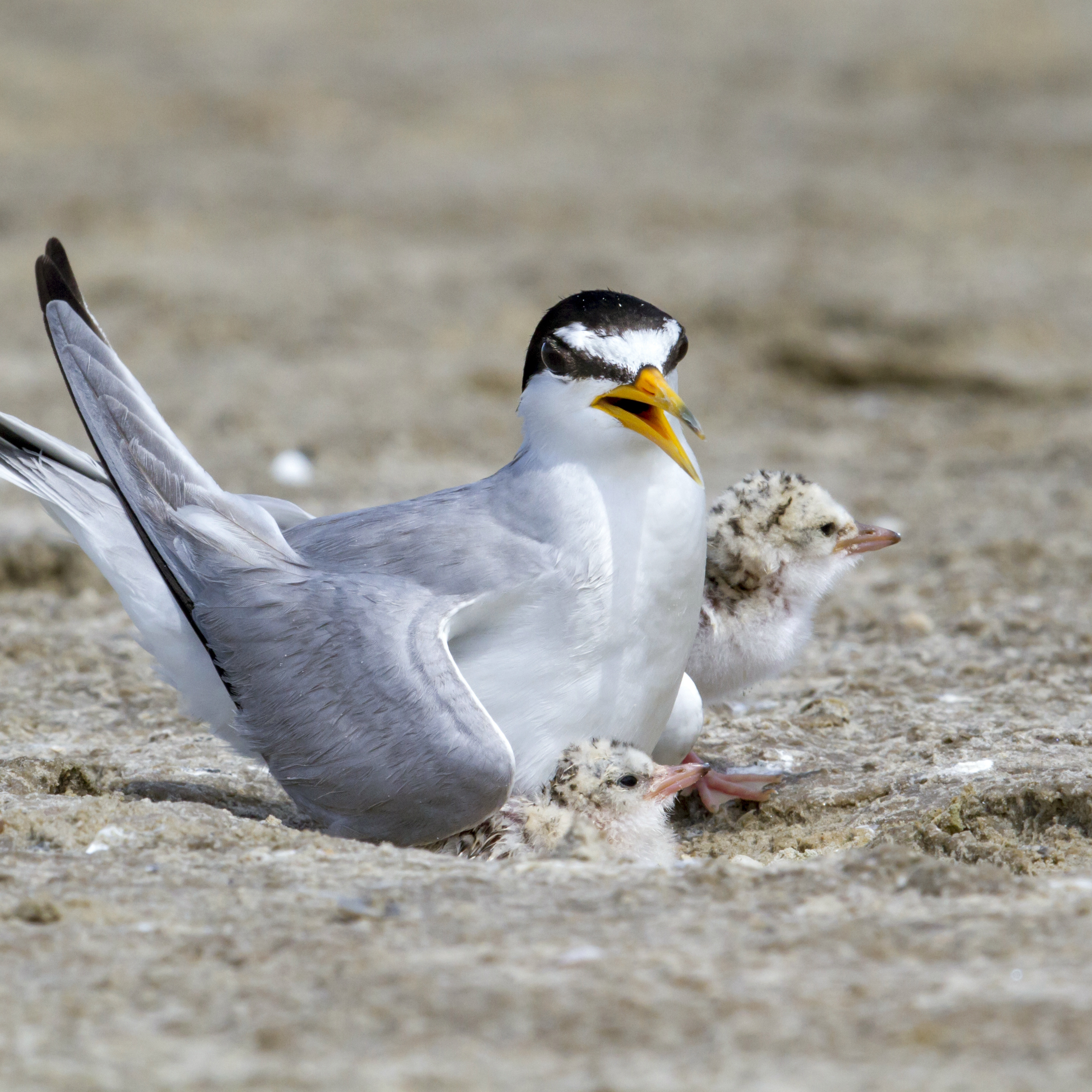
Published:
Last Updated:

Humankind has not been all that kind to the animals that share our planet. We have hunted and encroached on the habitat of many species — to extinction. Though hunting is less common, encroachment and other environmental factors are increasing in severity, putting many animals at risk. The International Union for Conservation of Nature keeps a list of endangered animals and plants, and according to the organization, 20,000 species are at risk.
Until the U.S. Congress passed the Endangered Species Act in 1973, there was little official protection for animals in this country. Humans nearly wiped out the buffalo as Americans pushed the frontier to the west in the 19th century. Animals such as the passenger pigeon exist only in the pages of ornithological books.
With animal conservation and protection in mind, 24/7 Wall St. has compiled a list of the most threatened animals in every state. Exact counts of each state’s endangered animal populations were not available. So we chose as examples for each state two critically endangered species. We focused on species with habitats unique to the state. To help us compile this list, we reviewed the U.S. Fish and Wildlife Service’s listing of endangered animals in each state in the United States, the International Union for Conservation of Nature’s Red List of threatened species, and other sources.
Click here to see the most endangered animals in every state.
Click here to see our detailed findings and methodology.
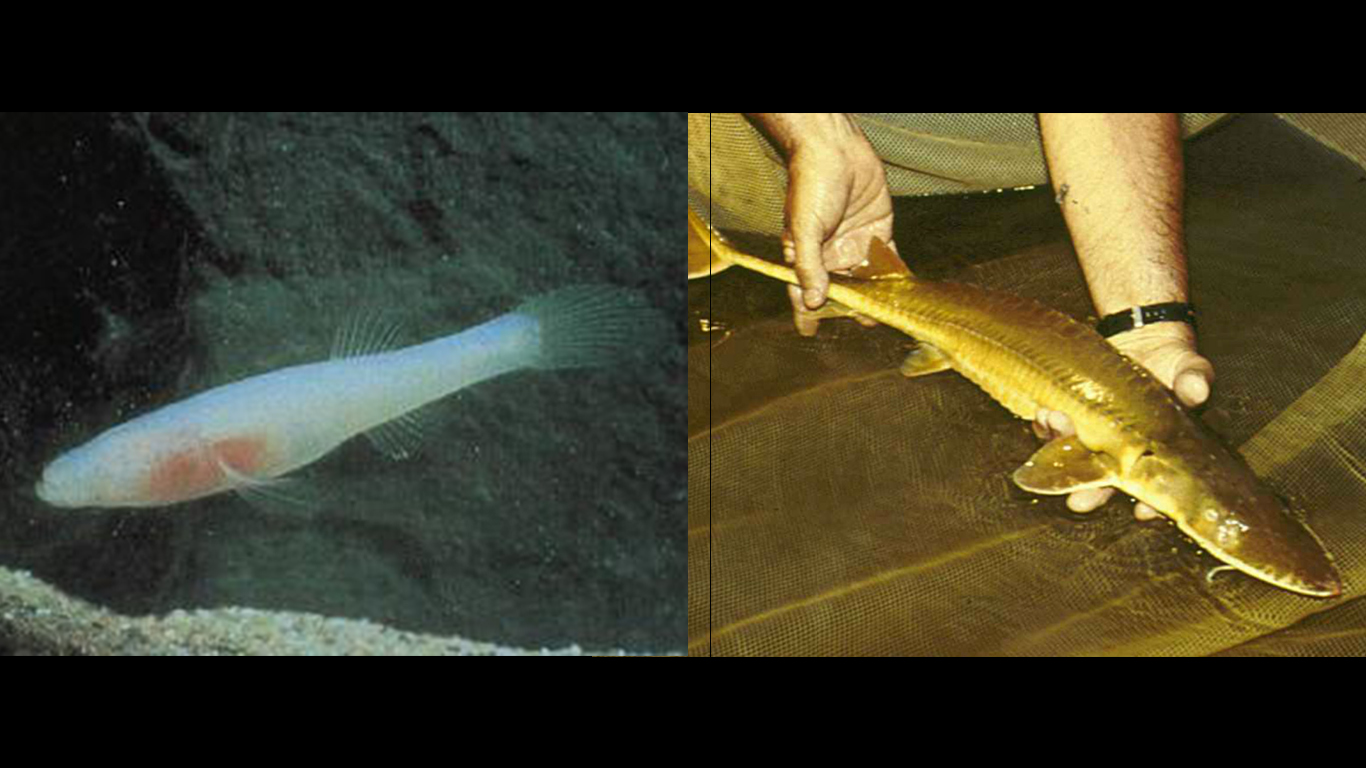
1. Alabama
> Most threatened animal(s): Cavefish (speoplatyrhinus poulsoni), Sturgeon (scaphirhynchus suttkusi)
[in-text-ad]
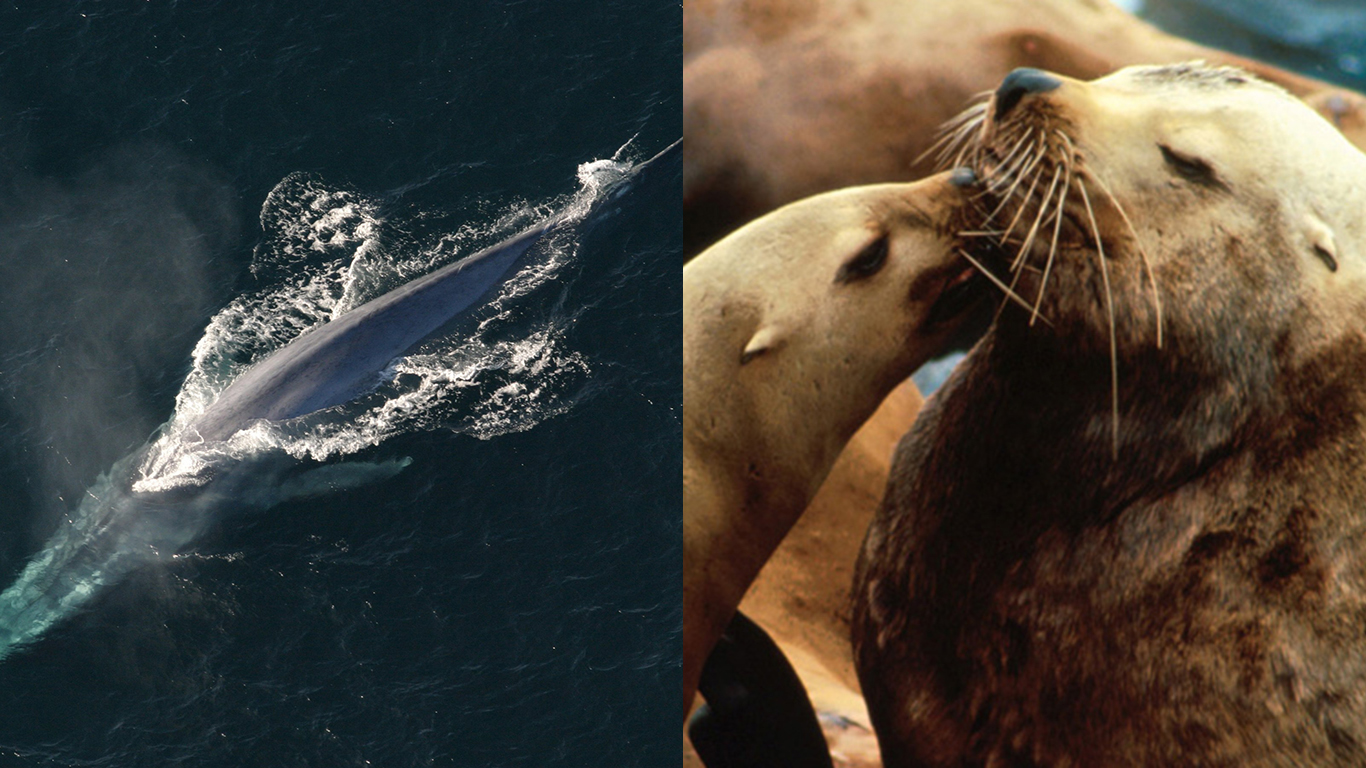
2. Alaska
> Most threatened animal(s): Steller Sea Lion (eumetopias jubatus), Blue Whale (balaenoptera musculus)
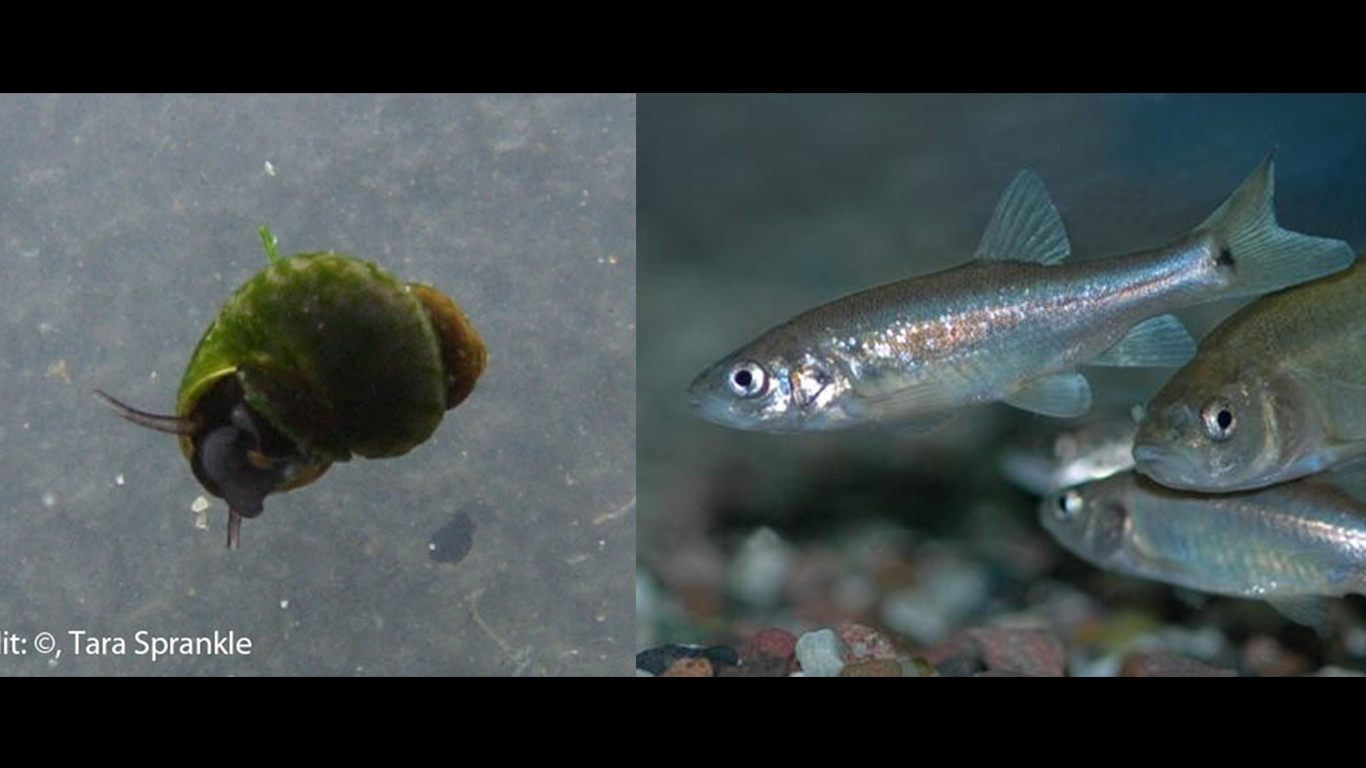
3. Arizona
> Most threatened animal(s): Yaqui Chub (gila purpurea), Three Forks Springsnail (pyrgulopsis trivialis)
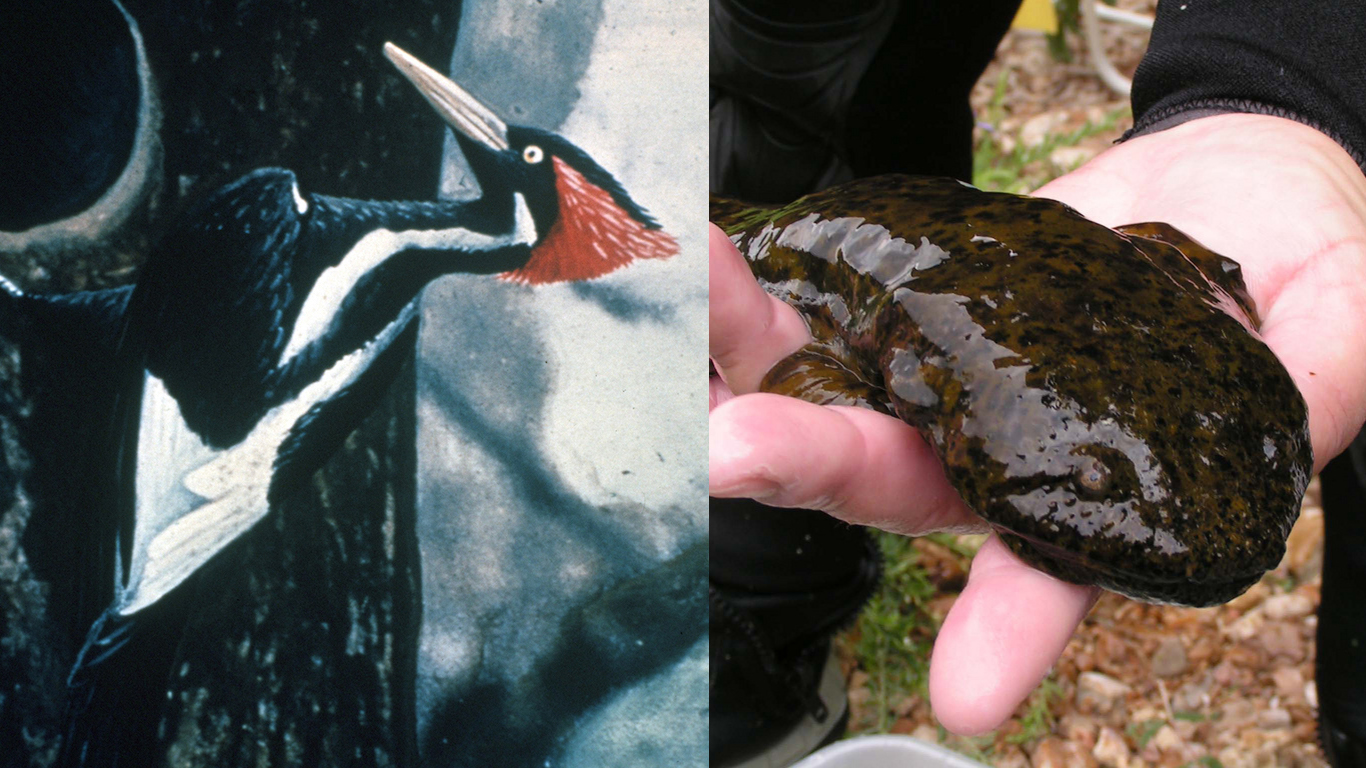
4. Arkansas
> Most threatened animal(s): Ivory-Billed Woodpecker (campephilus principalis), Ozark Hellbender (cryptobranchus alleganiensis bishopi)
[in-text-ad-2]
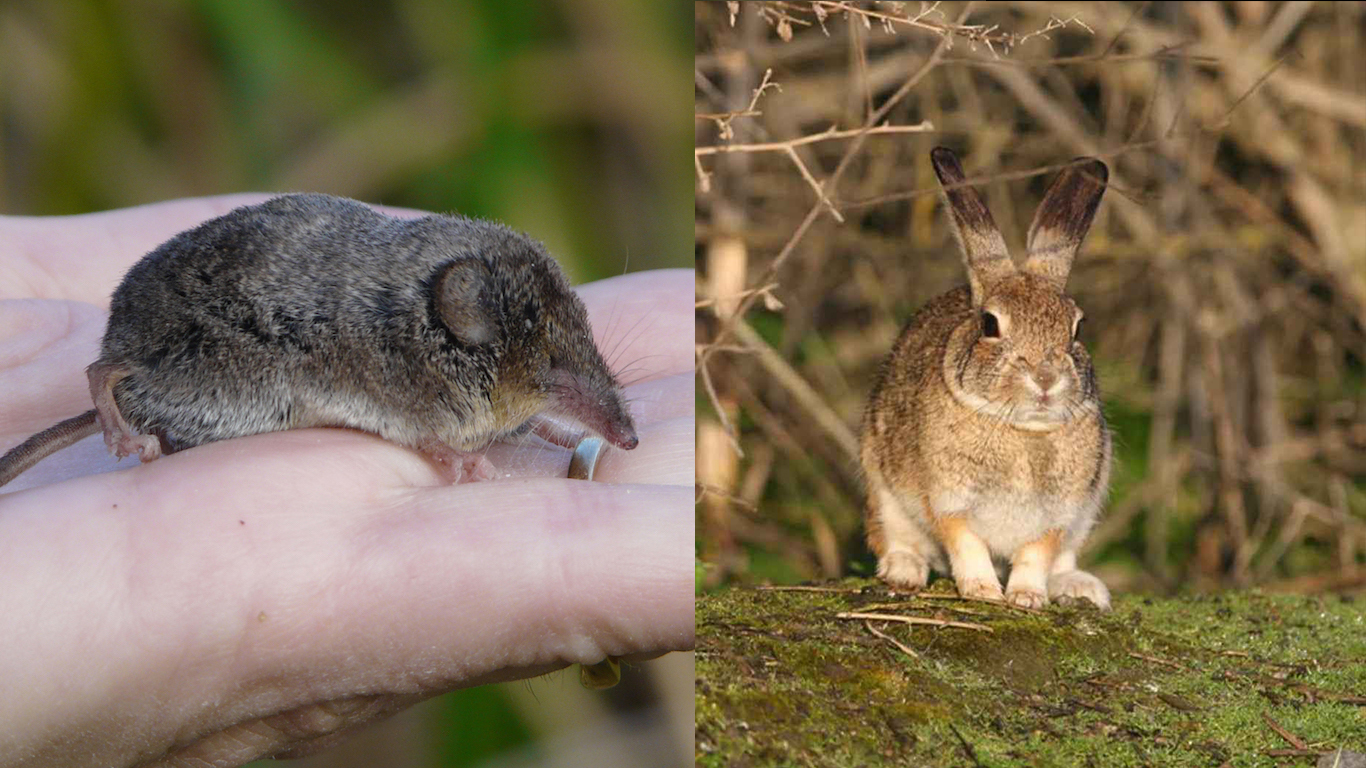
5. California
> Most threatened animal(s): Riparian Brush Rabbit (sylvilagus bachmani riparius), Buena Vista Lake Ornate Shrew (sorex ornatus relictus)
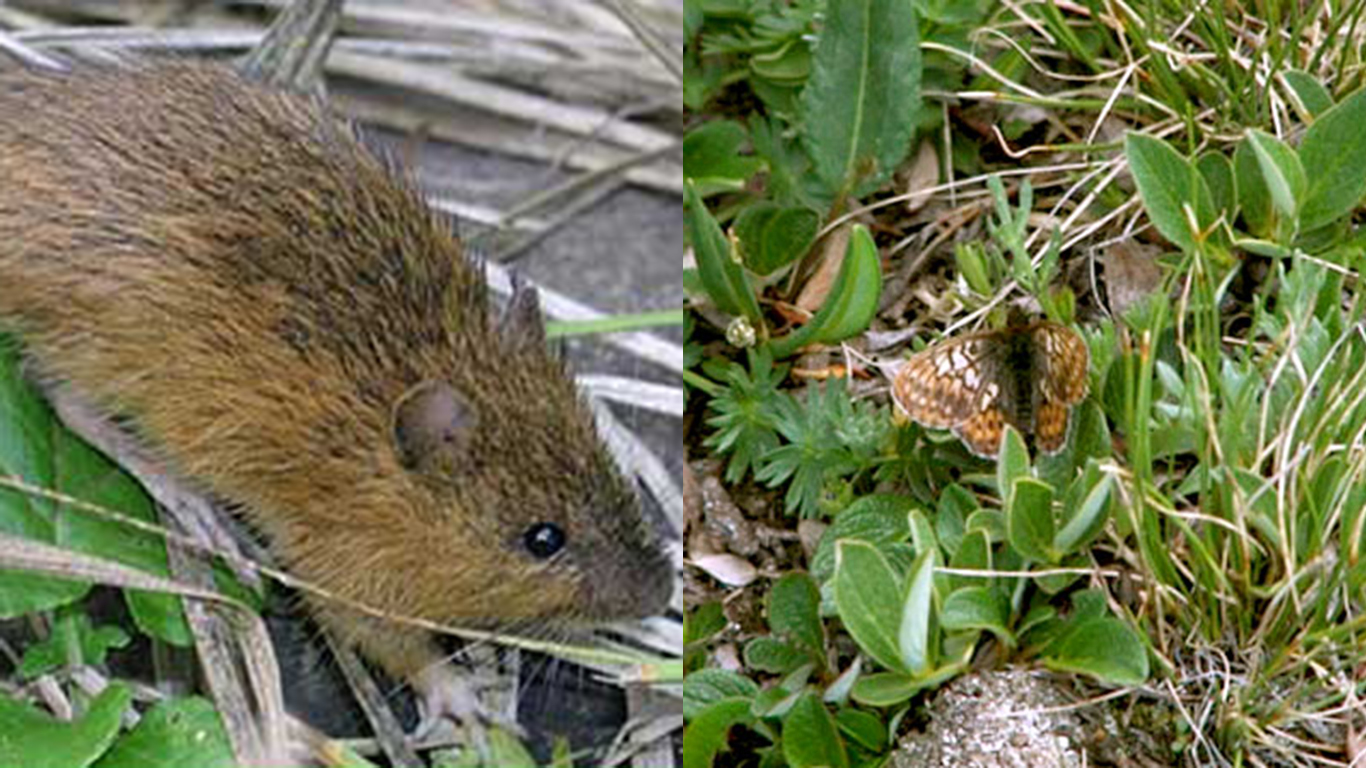
6. Colorado
> Most threatened animal(s): Uncompahgre Fritillary Butterfly (boloria acrocnema), Meadow Jumping Mouse (zapus hudsonius luteus)
[in-text-ad]
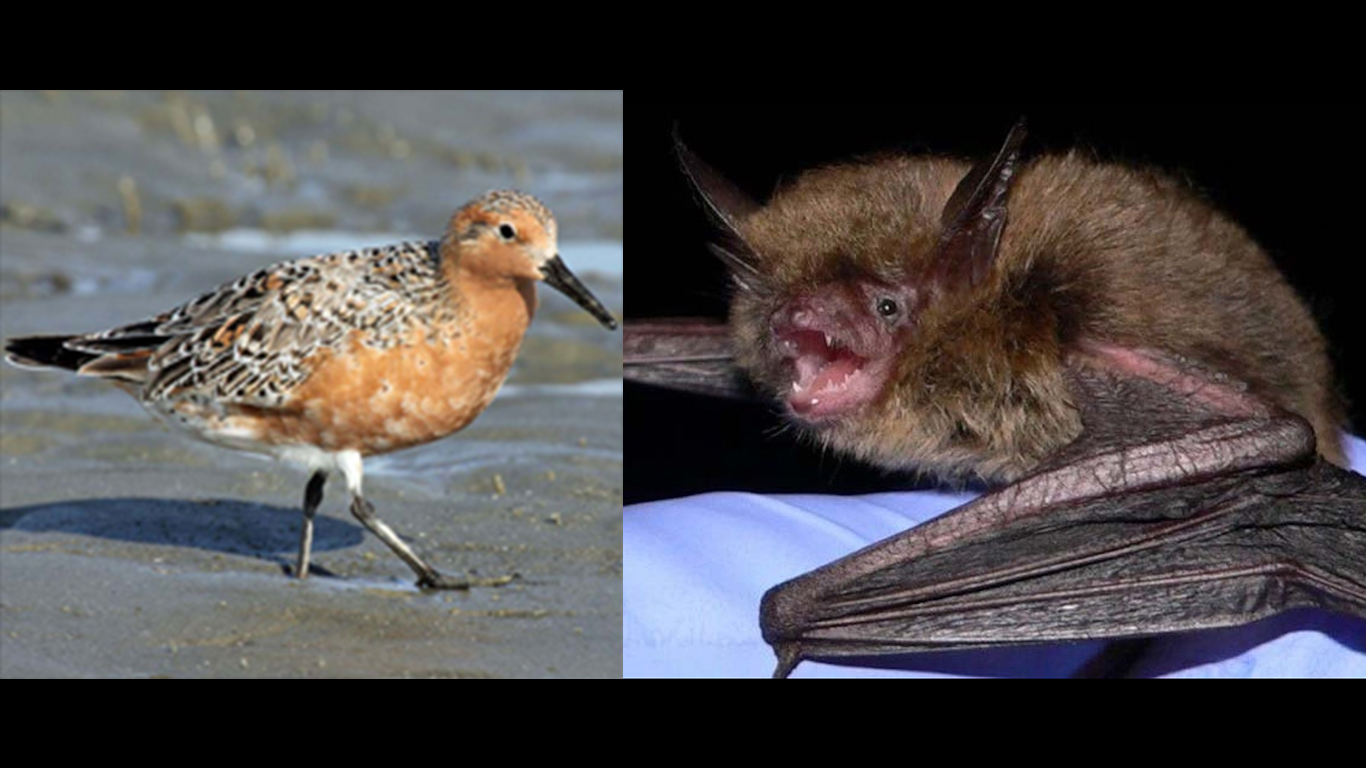
7. Connecticut
> Most threatened animal(s): Northern Bat (myotis septentrionalis), Red Knot (calidris canutus rufa)
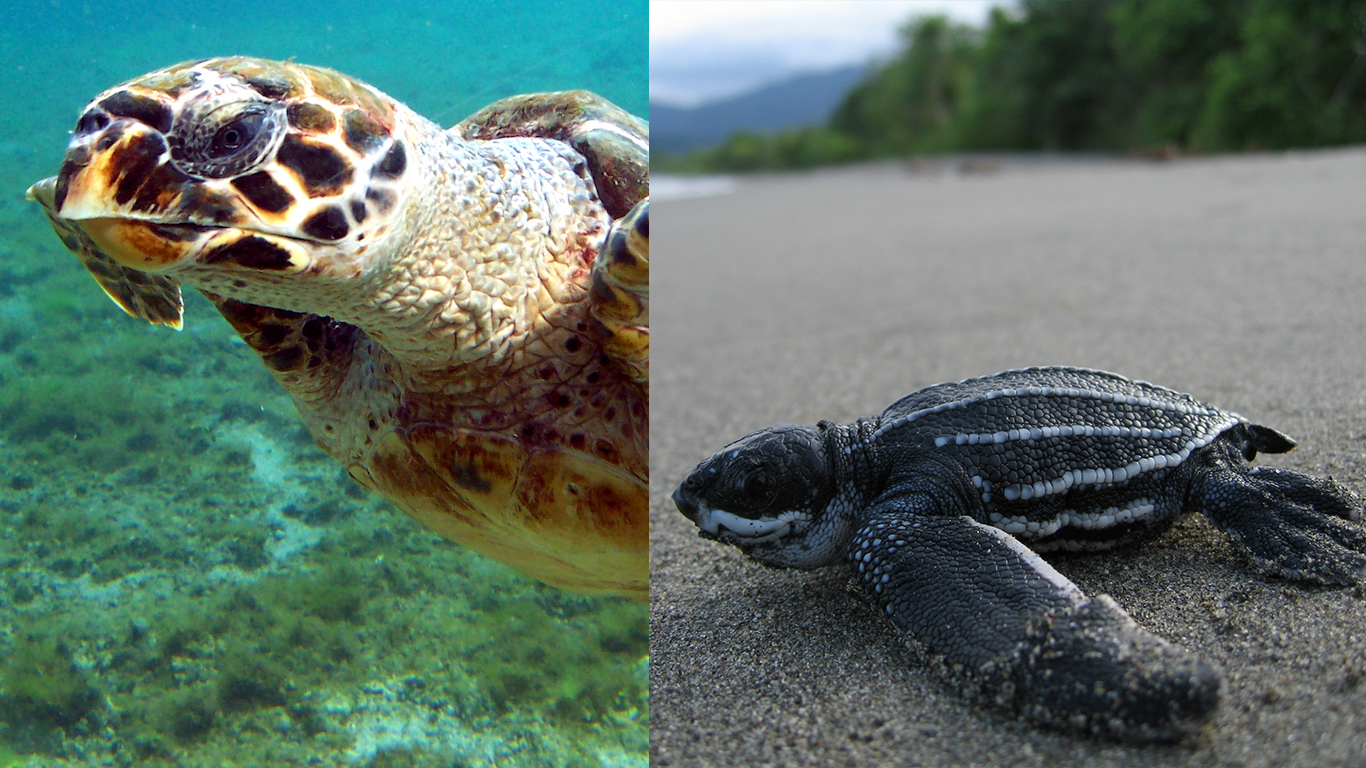
8. Delaware
> Most threatened animal(s): Hawksbill Sea Turtle (eretmochelys imbricata), Leatherback Sea Turtle (dermochelys coriacea)
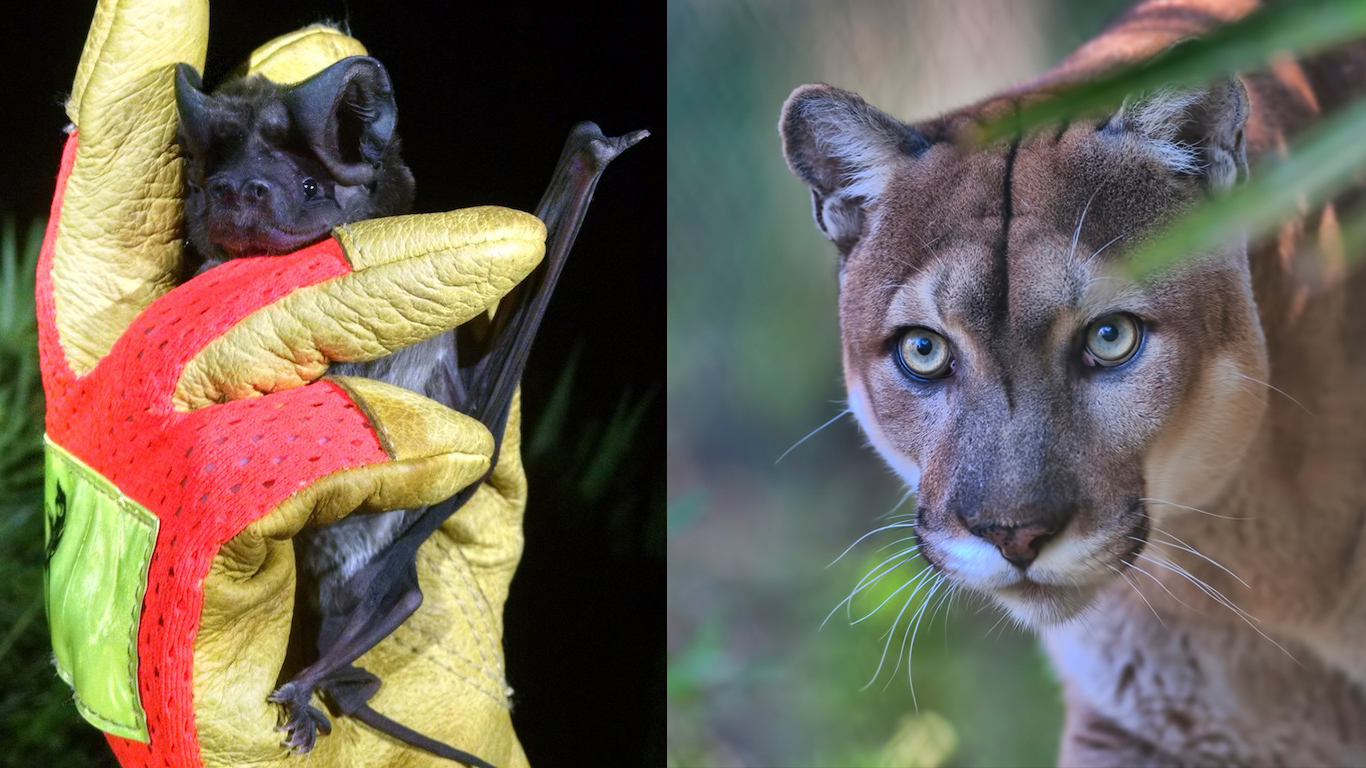
9. Florida
> Most threatened animal(s): Florida Bonneted Bat (eumops floridanus), Florida Panther (puma concolor coryi)
[in-text-ad-2]
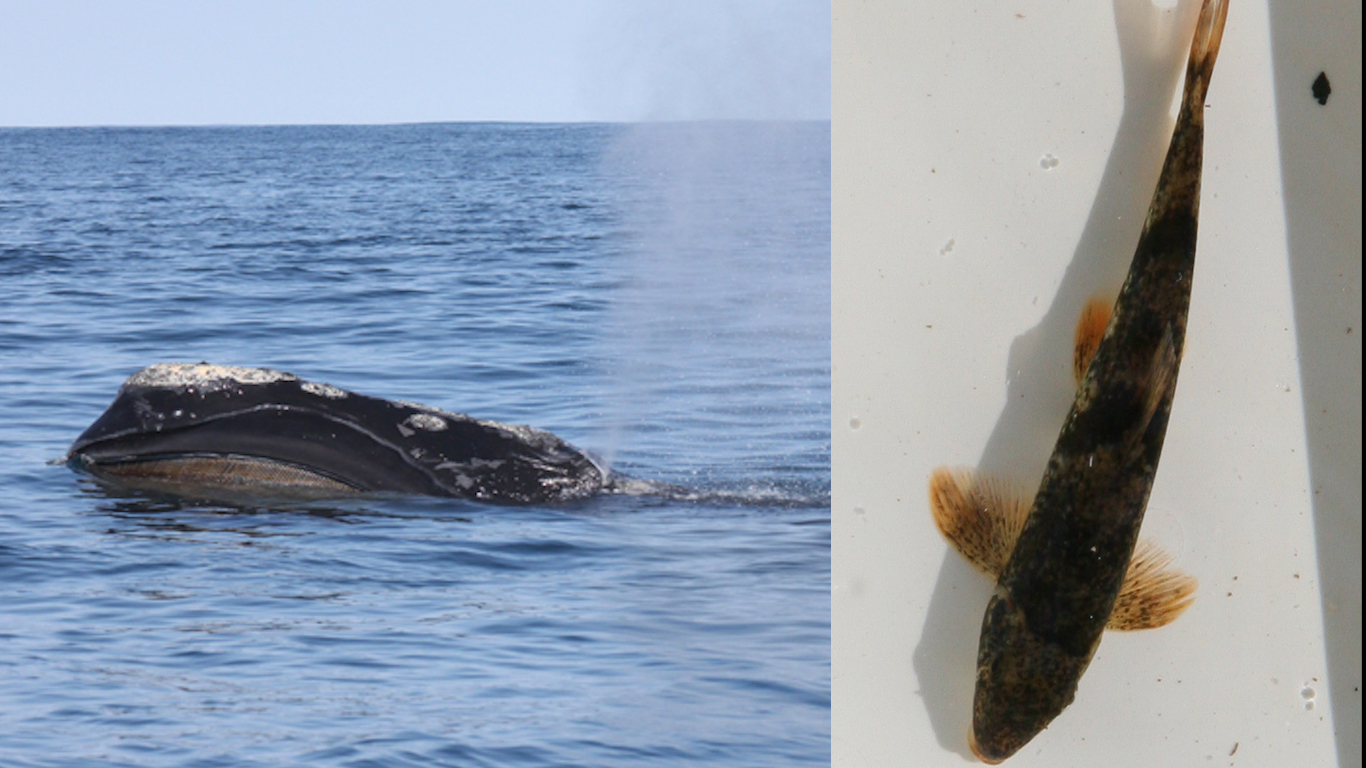
10. Georgia
> Most threatened animal(s): Etowah Darter (etheostoma etowahae), North Atlantic Right Whale (eubalaena glacialis)
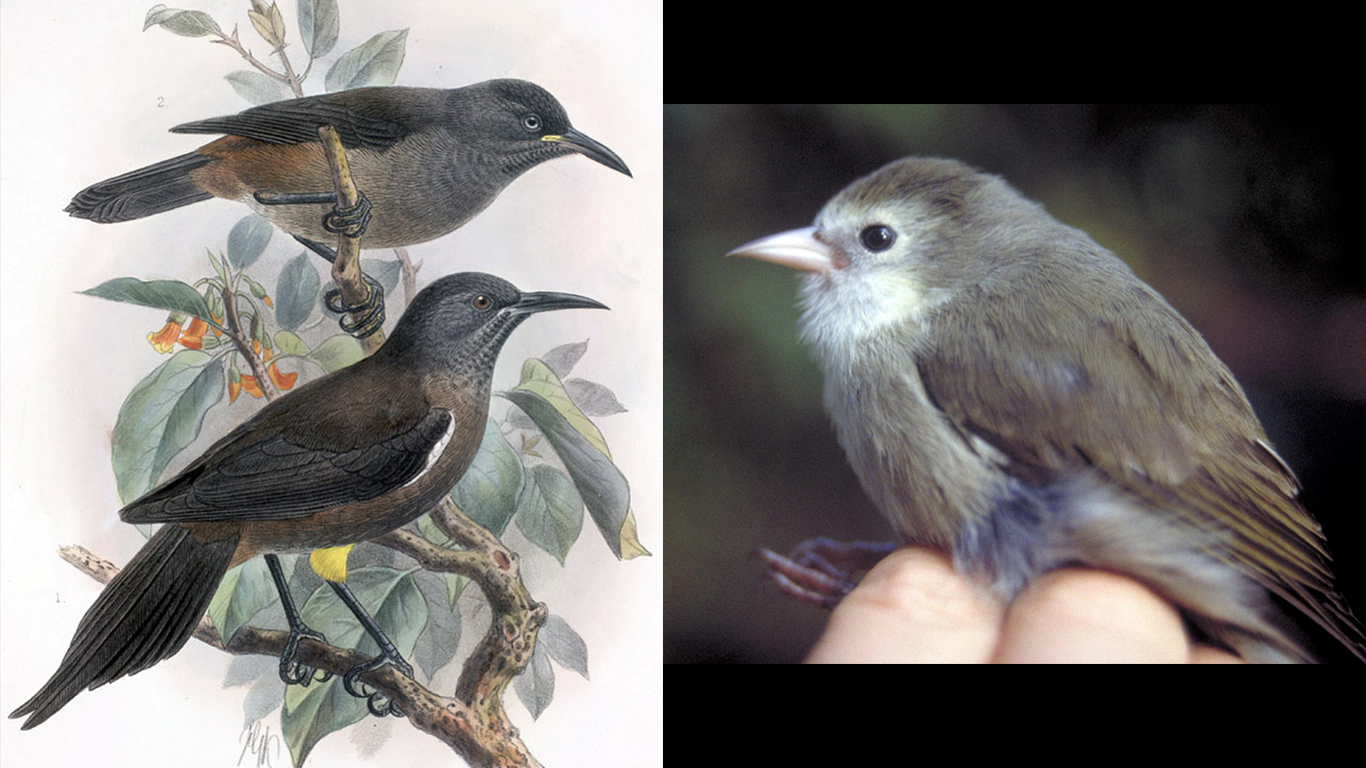
11. Hawaii
> Most threatened animal(s): Kauai `O`O (moho braccatus), Akikiki (oreomystis bairdi)
[in-text-ad]
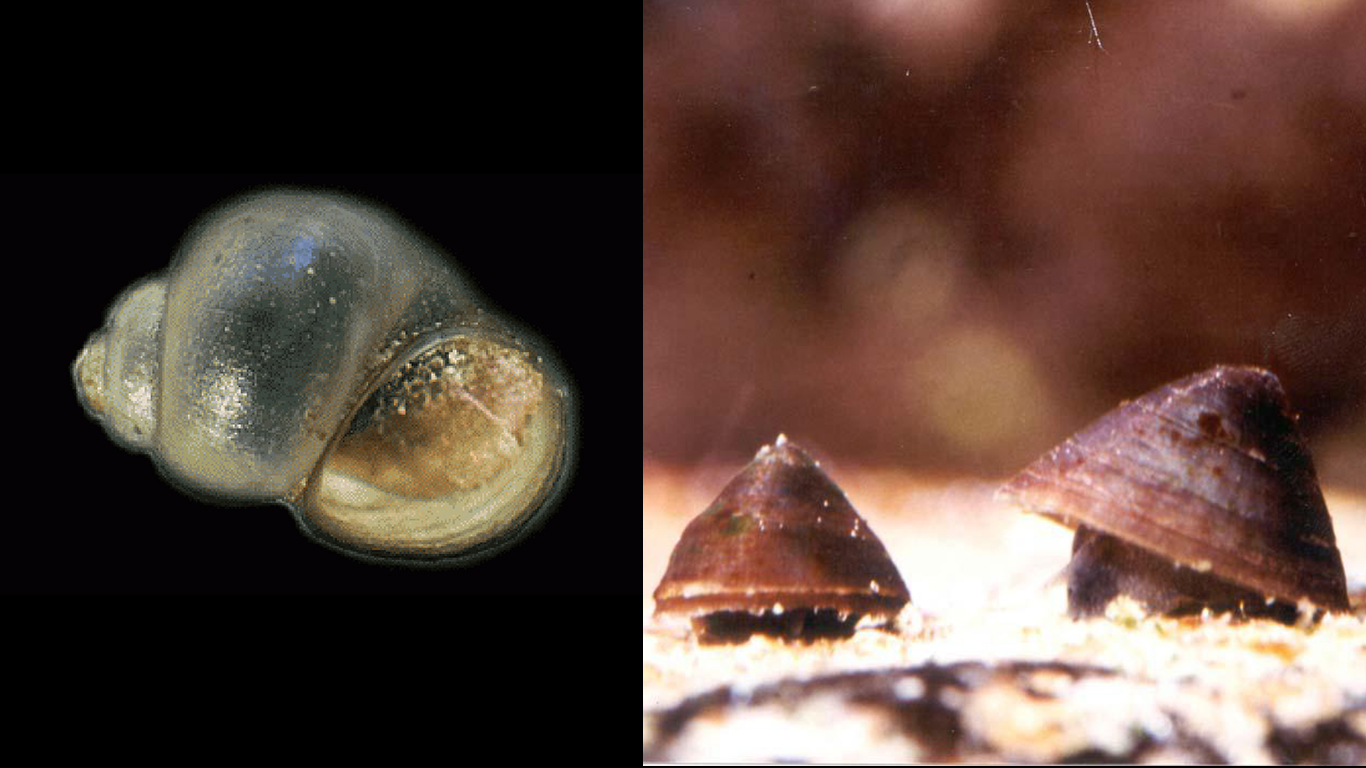
12. Idaho
> Most threatened animal(s): Banbury Springs Limpet (idaholanx fresti), Bruneau Hot Springsnail (pyrgulopsis bruneauensis)
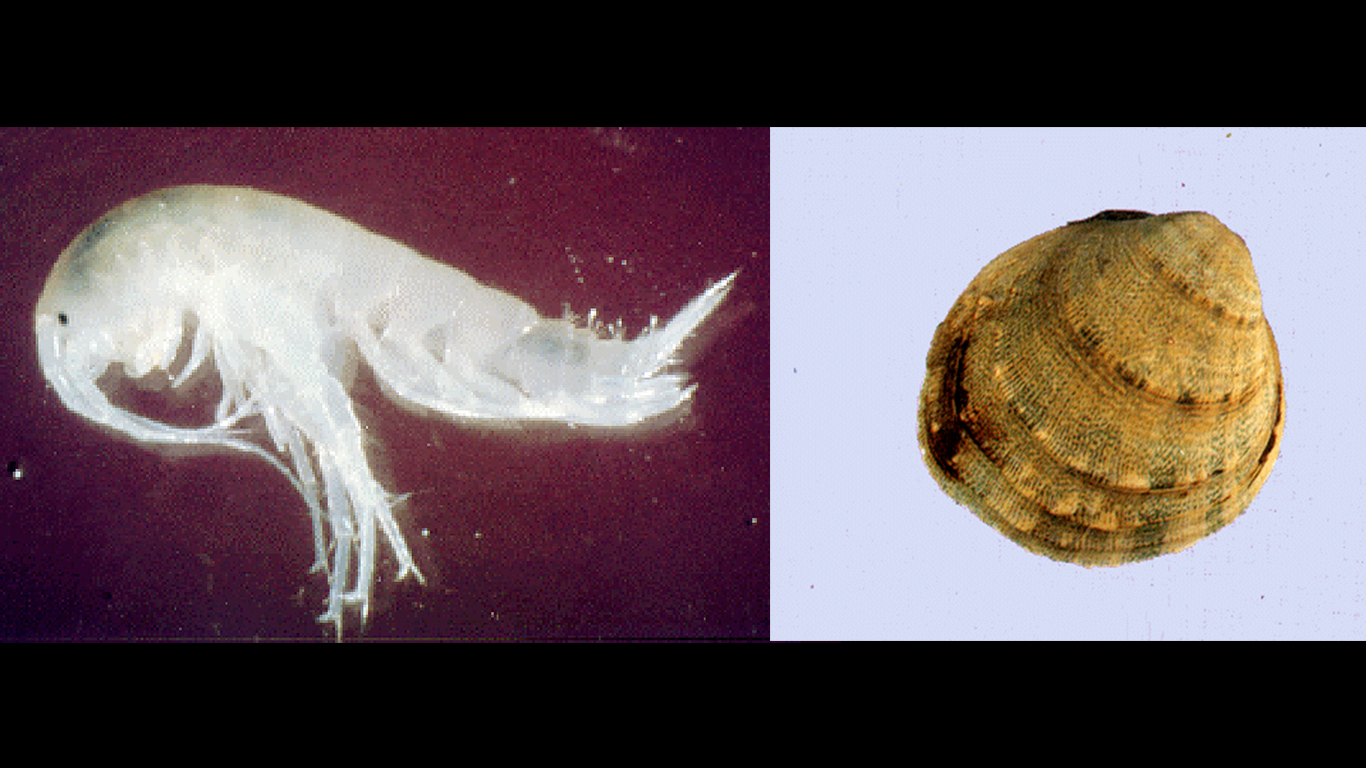
13. Illinois
> Most threatened animal(s): Illinois Cave Amphipod (gammarus acherondytes), Fanshell (cyprogenia stegaria)
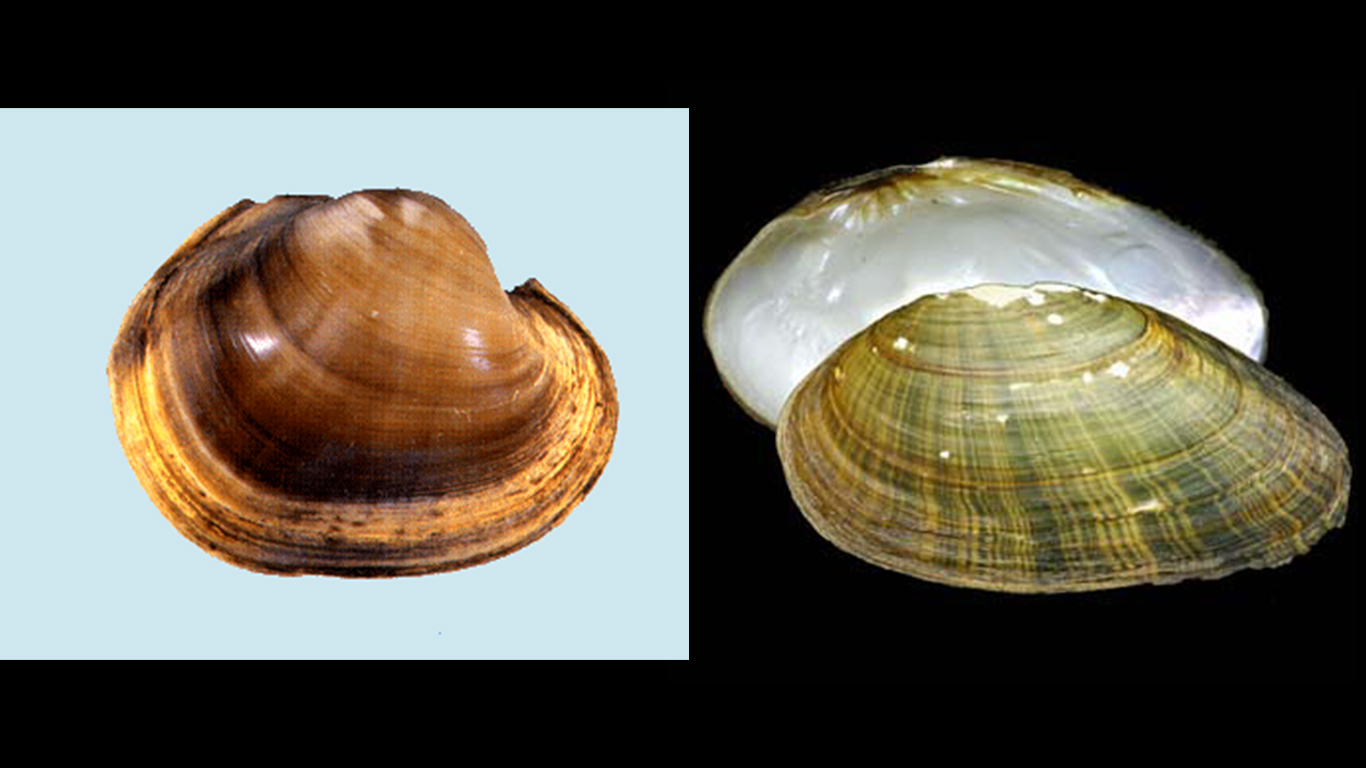
14. Indiana
> Most threatened animal(s): Fat Pocketbook (potamilus capax), Rayed Bean (villosa fabalis)
[in-text-ad-2]
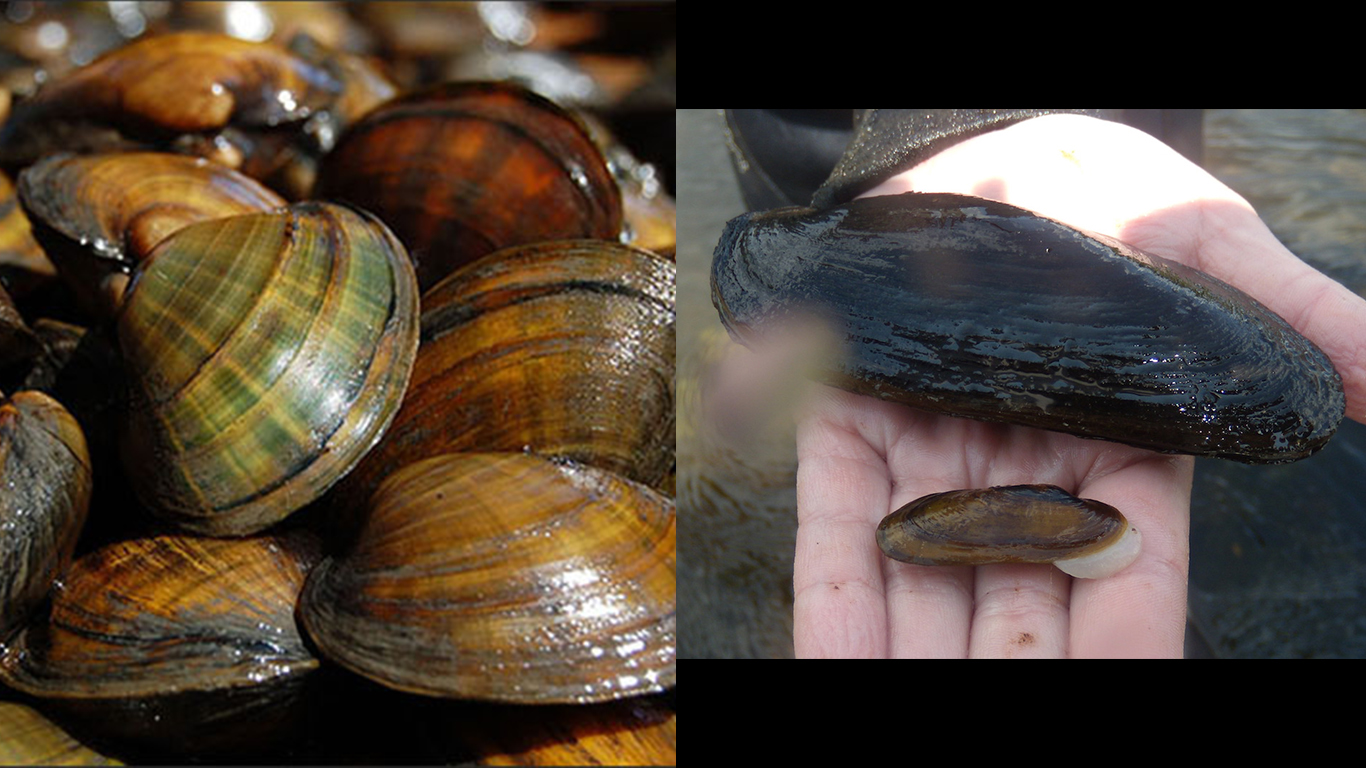
15. Iowa
> Most threatened animal(s): Spectaclecase (cumberlandia monodonta), Higgins Eye (lampsilis higginsii)
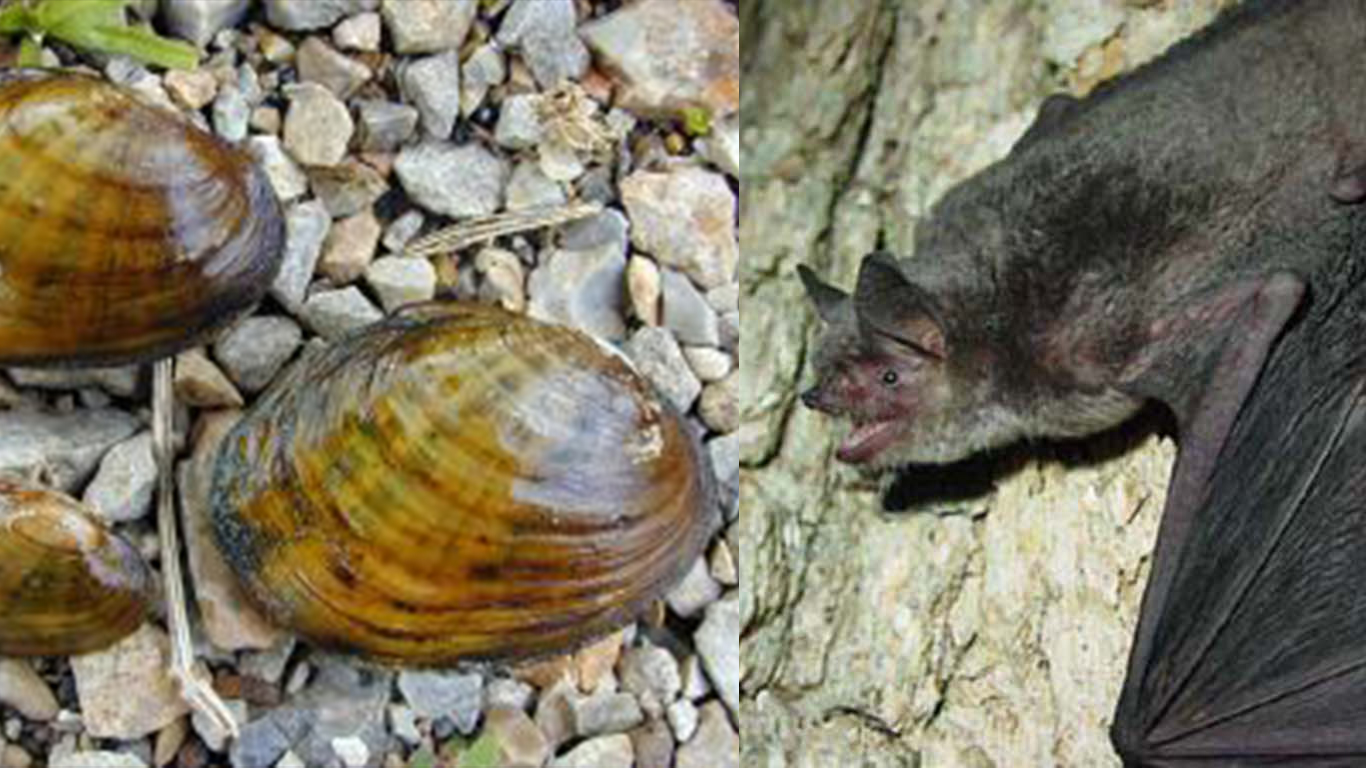
16. Kansas
> Most threatened animal(s): Gray Bat (myotis grisescens), Neosho Mucket (lampsilis rafinesqueana)
[in-text-ad]
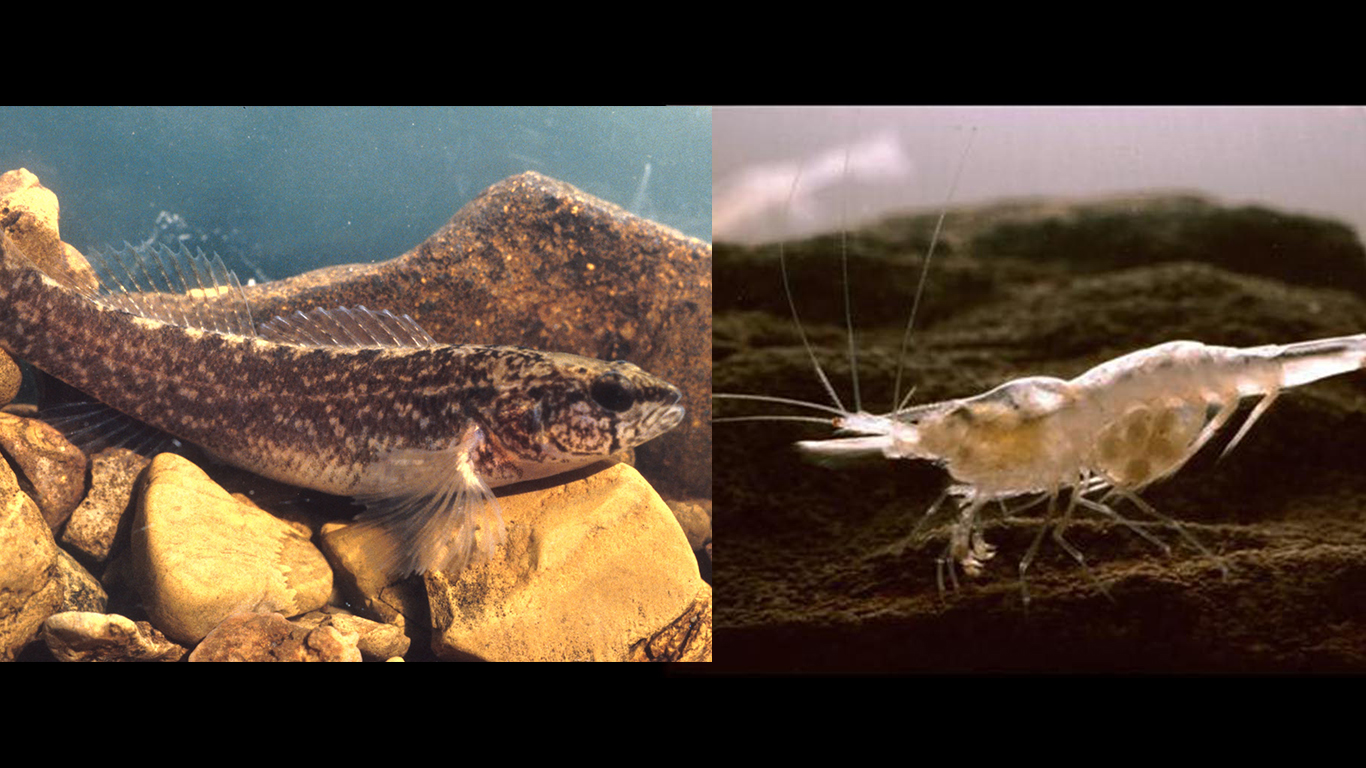
17. Kentucky
> Most threatened animal(s): Relict Darter (etheostoma chienense), Kentucky Cave Shrimp (palaemonias ganteri)
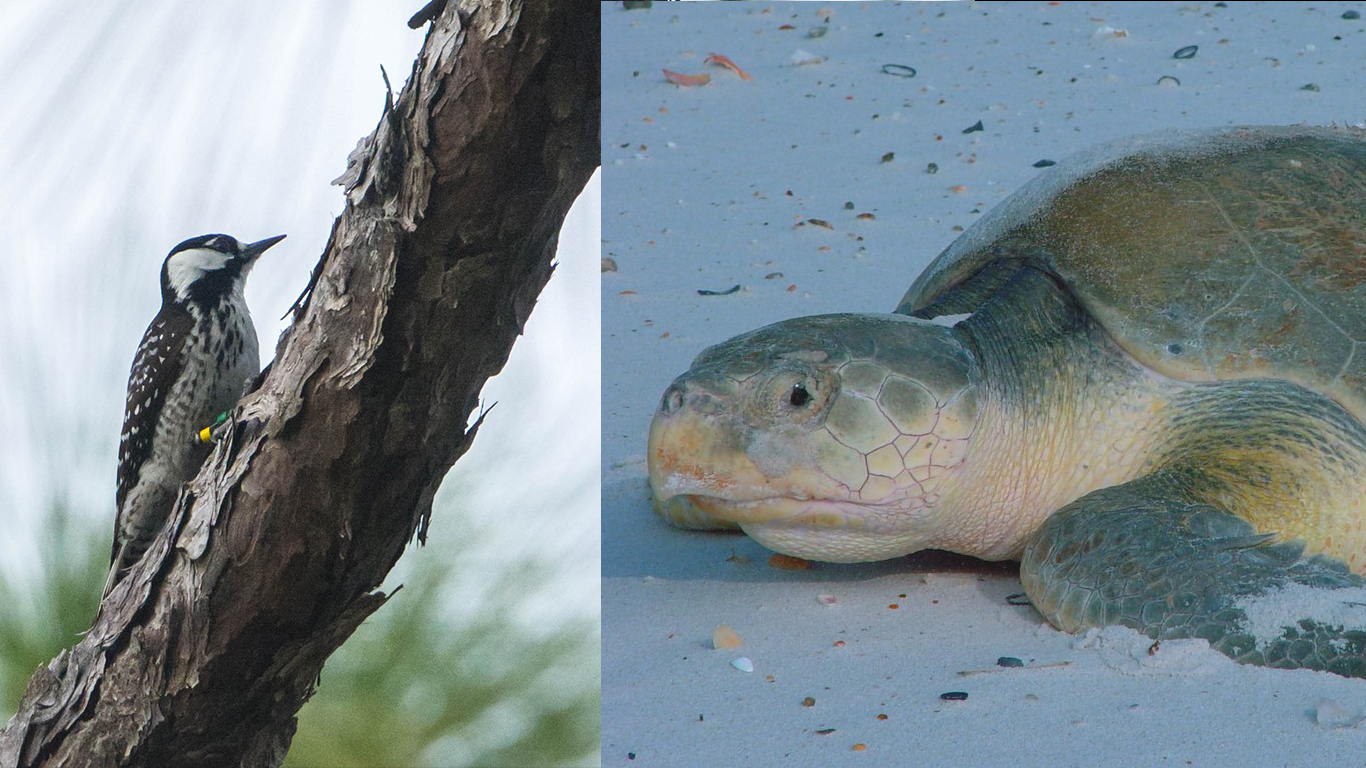
18. Louisiana
> Most threatened animal(s): Kemp’s Ridley Sea Turtle (lepidochelys kempii), Red-Cockaded Woodpecker (picoides borealis)
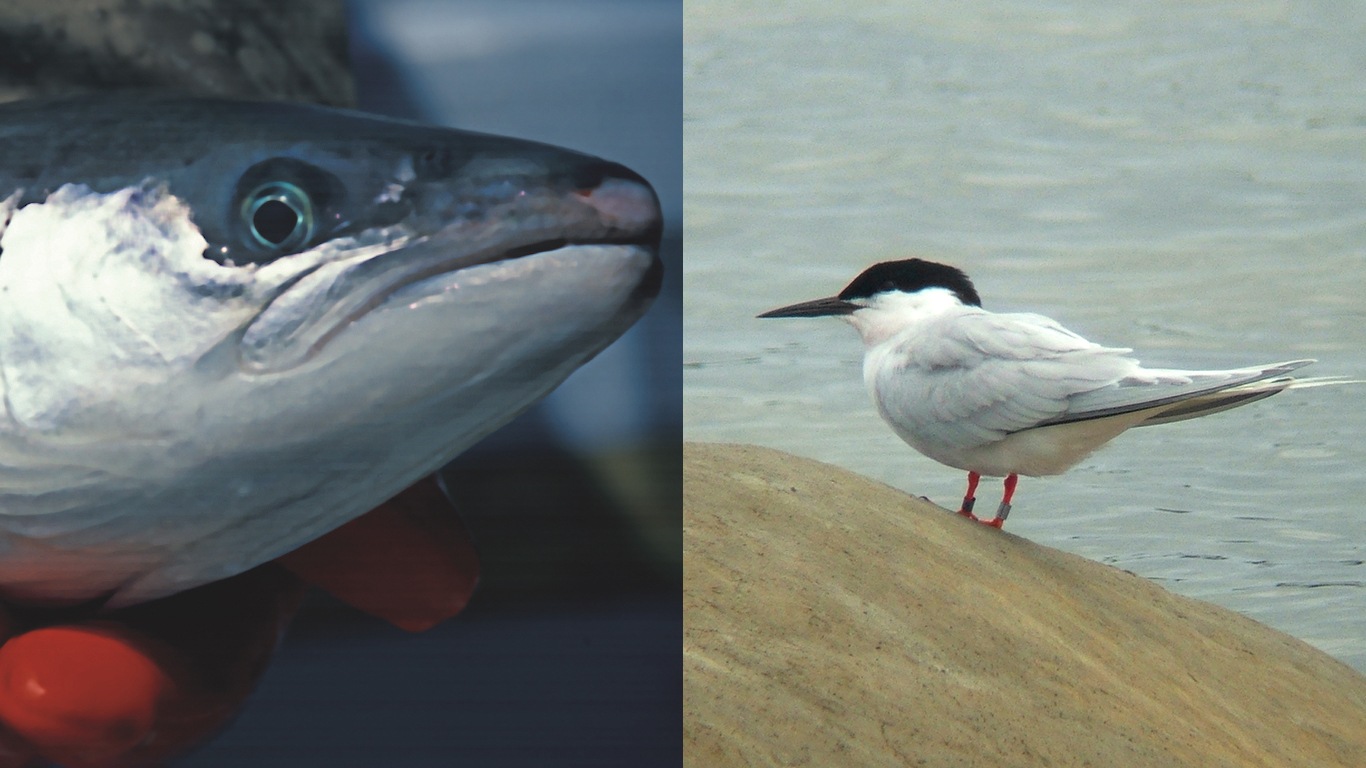
19. Maine
> Most threatened animal(s): Atlantic Salmon (salmo salar), Roseate Tern (sterna dougallii dougallii)
[in-text-ad-2]
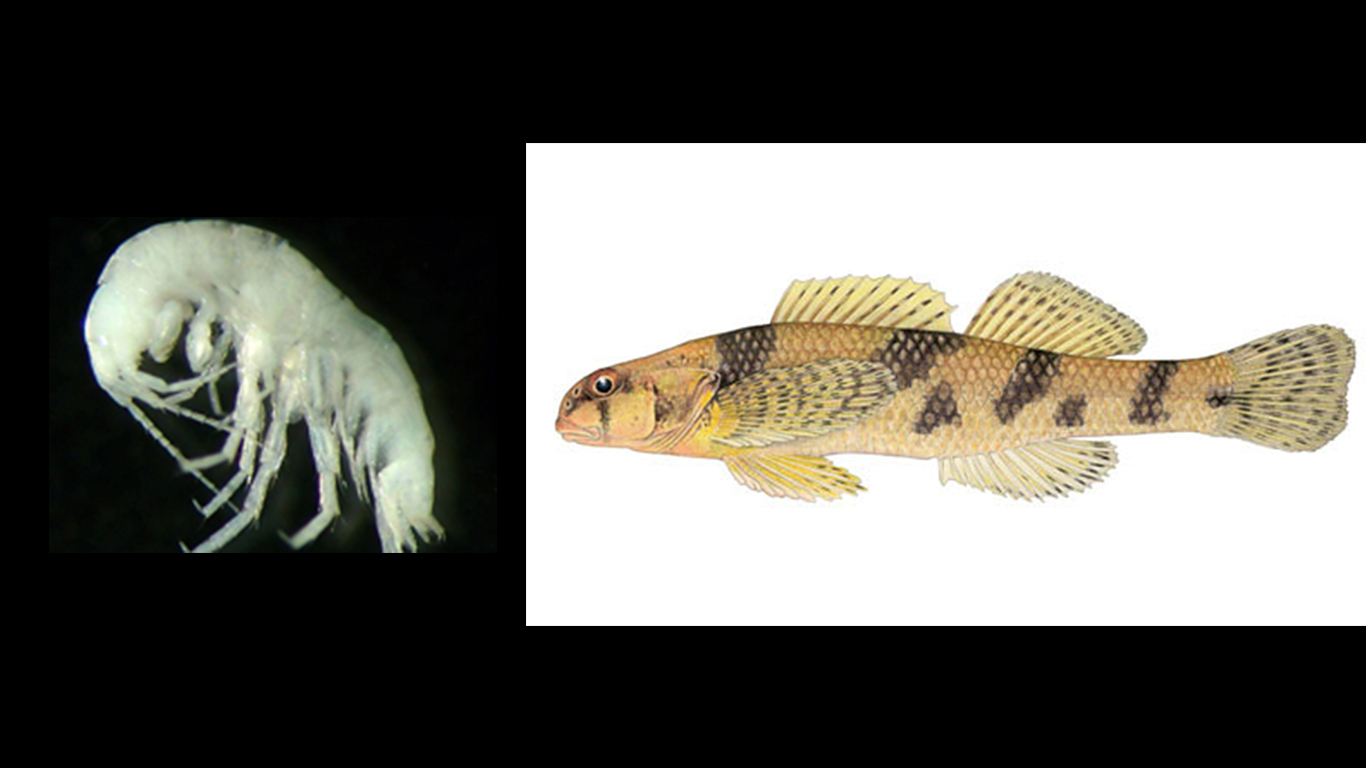
20. Maryland
> Most threatened animal(s): Hay’s Spring Amphipod (stygobromus hayi), Maryland Darter (etheostoma sellare)
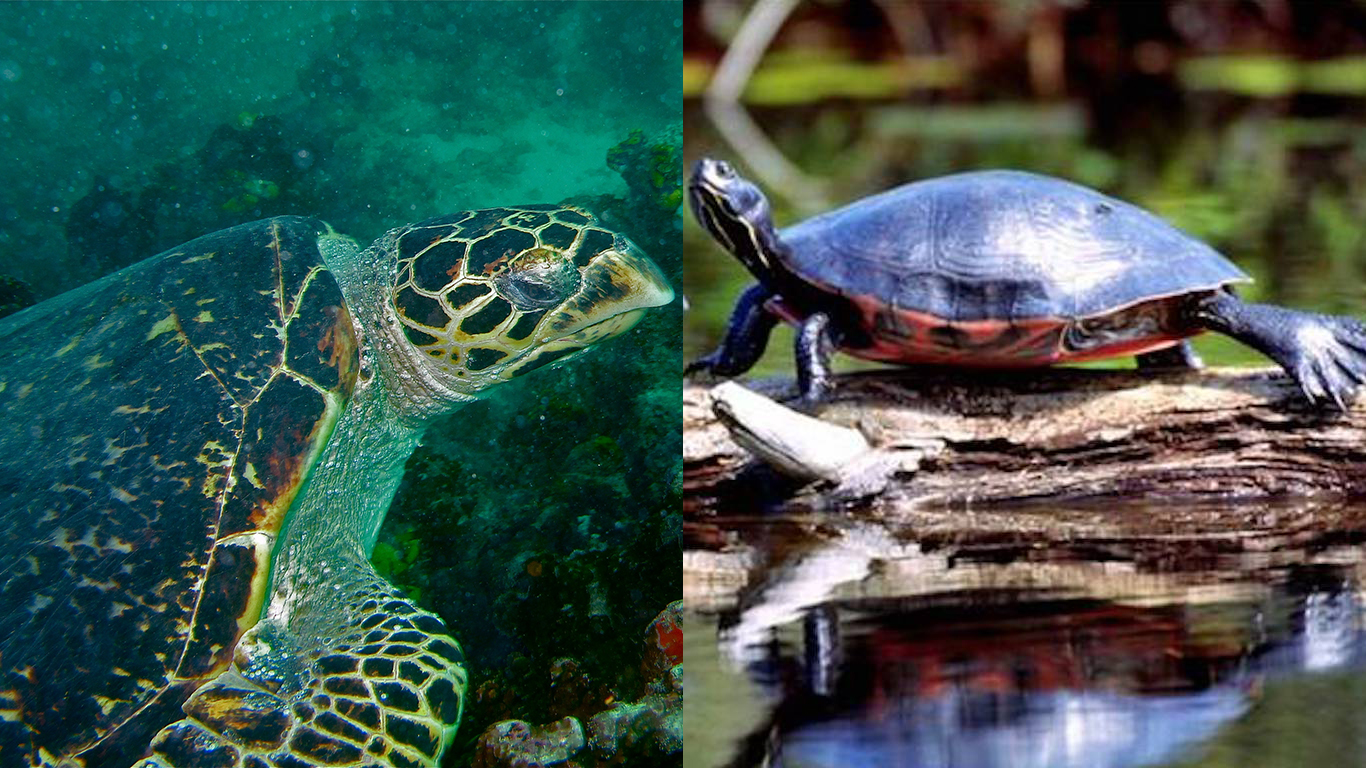
21. Massachusetts
> Most threatened animal(s): Plymouth Redbelly Turtle (pseudemys rubriventris bangsi), Hawksbill Sea Turtle (eretmochelys imbricata)
[in-text-ad]
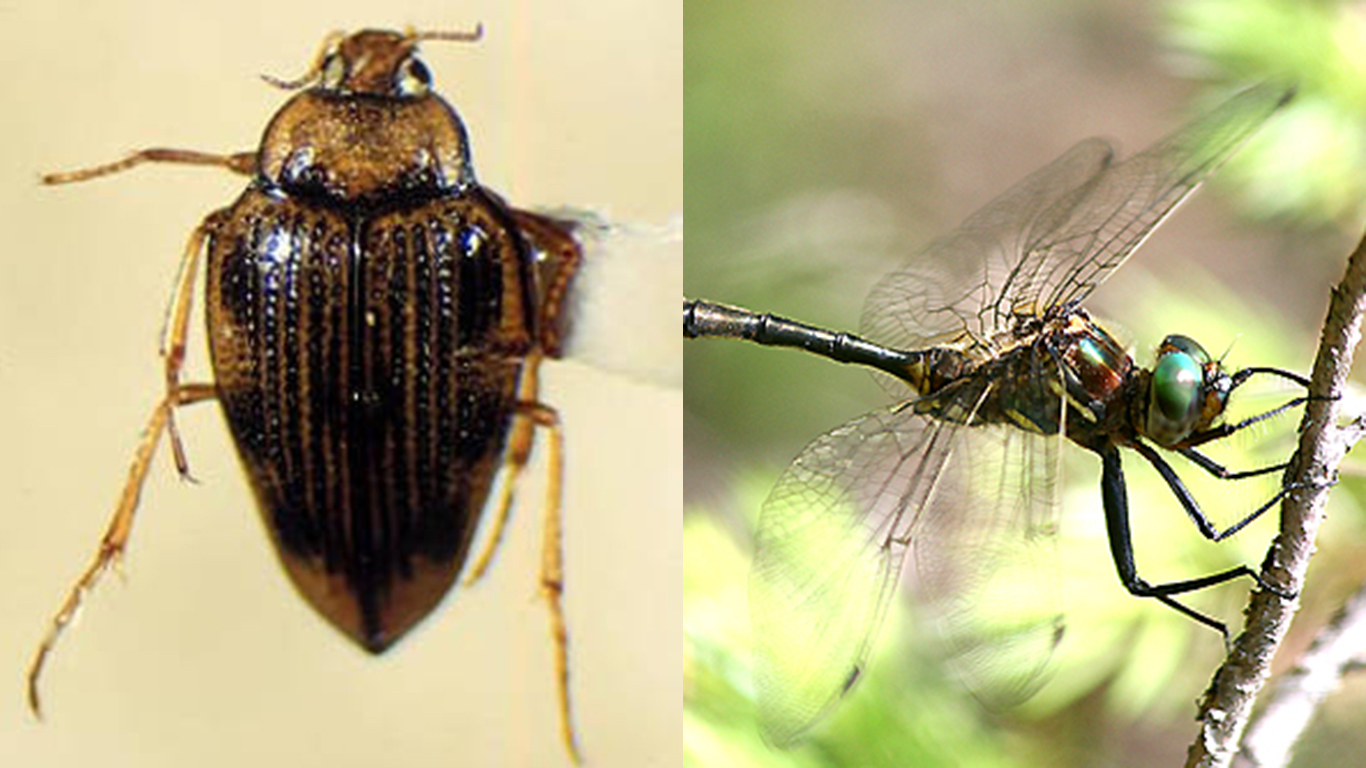
22. Michigan
> Most threatened animal(s): Hungerford’s Crawling Water Beetle (brychius hungerfordi), Hine’s Emerald Dragonfly (somatochlora hineana)
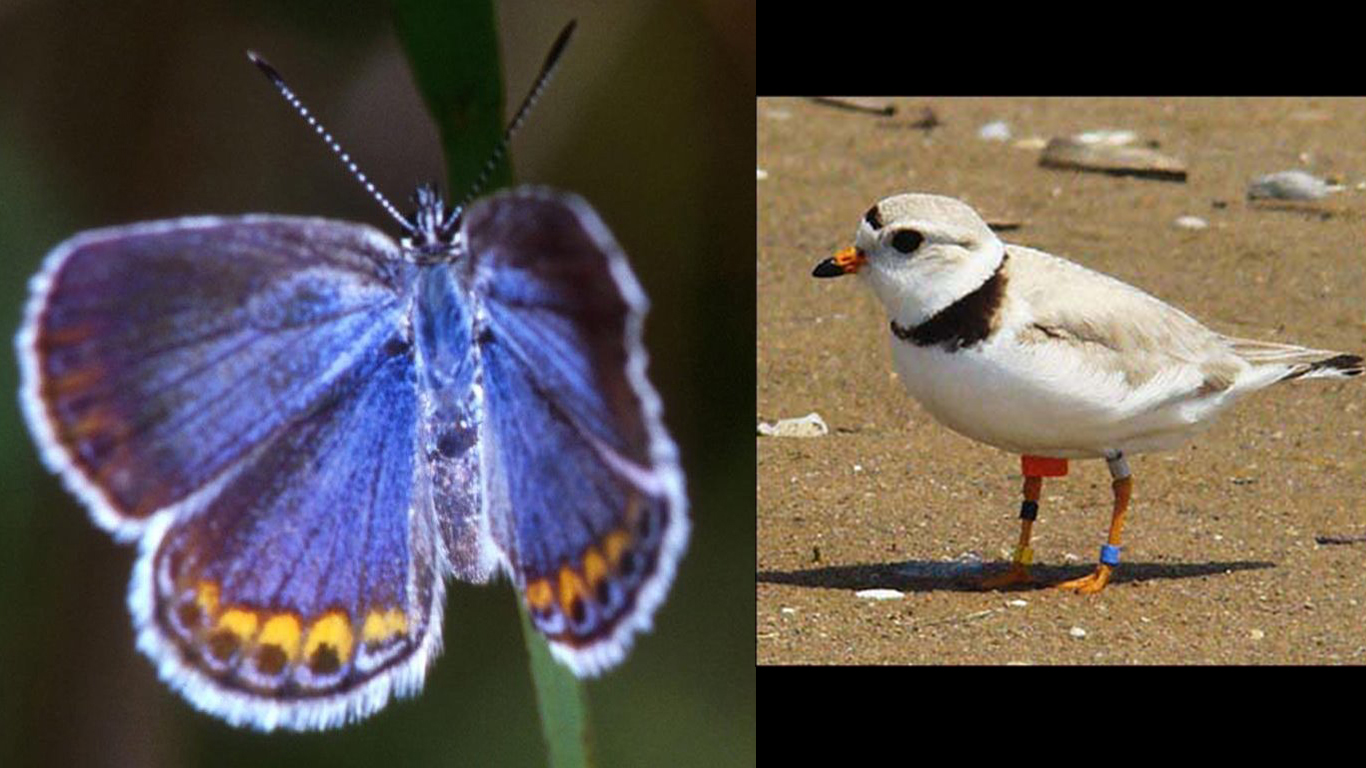
23. Minnesota
> Most threatened animal(s): Karner Blue Butterfly (lycaeides melissa samuelis), Piping Plover (charadrius melodus)
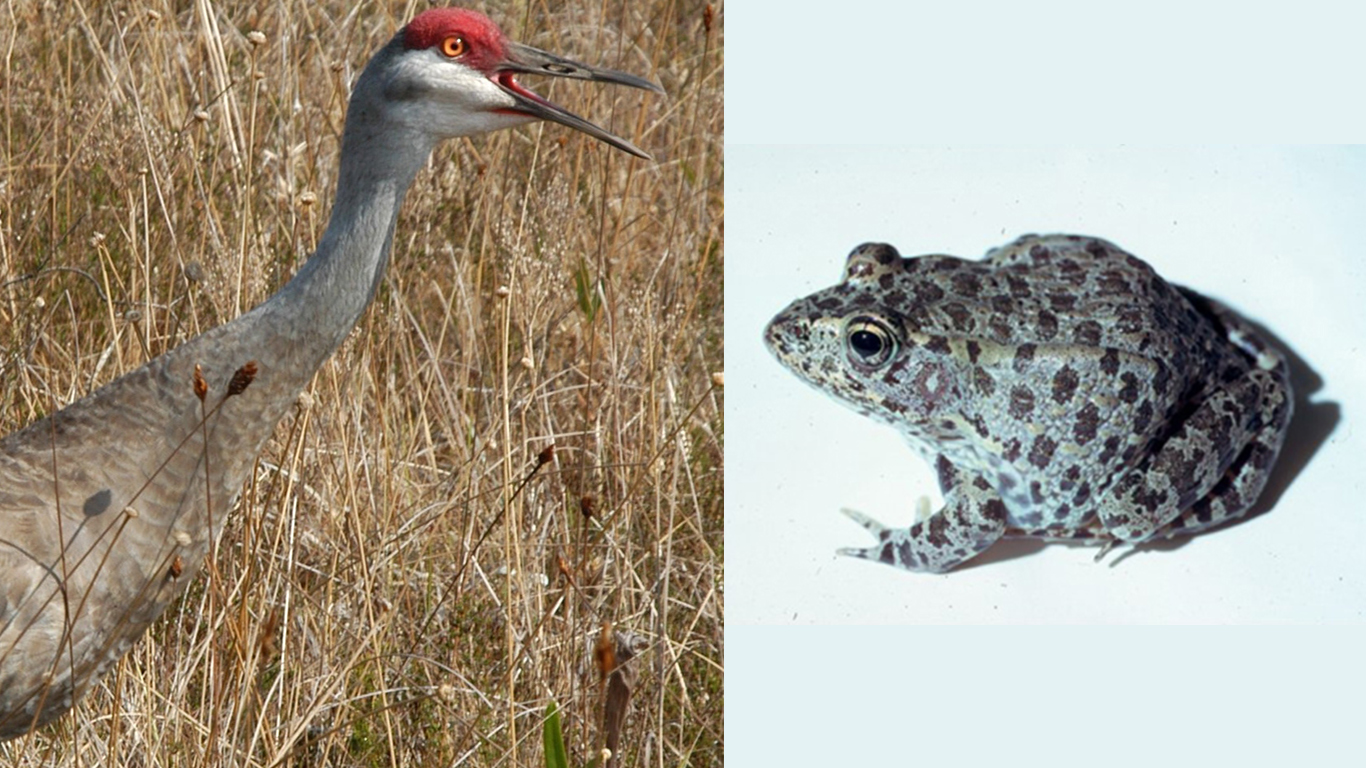
24. Mississippi
> Most threatened animal(s): Mississippi Sandhill Crane (grus canadensis pulla), Dusky Gopher Frog (rana sevosa)
[in-text-ad-2]
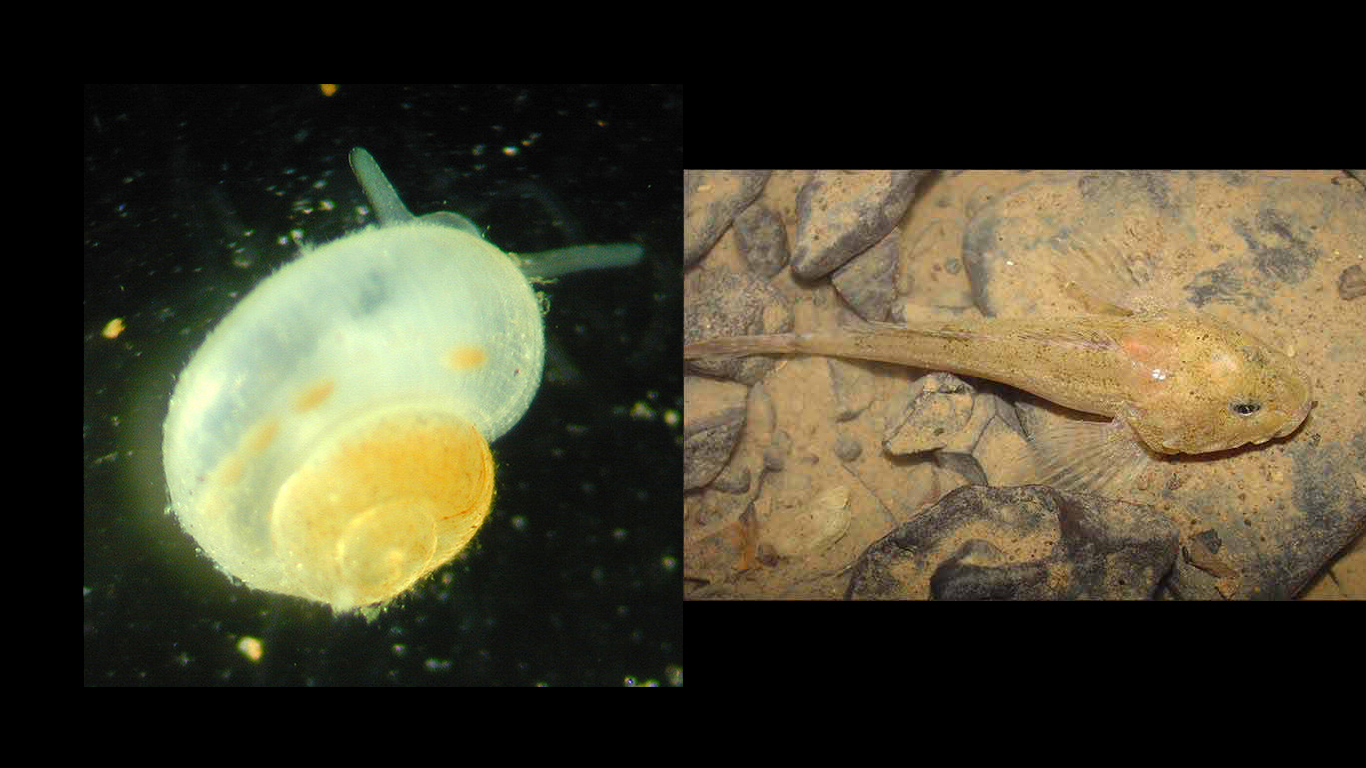
25. Missouri
> Most threatened animal(s): Tumbling Creek Cavesnail (antrobia culveri), Grotto Sculpin (cottus specus)
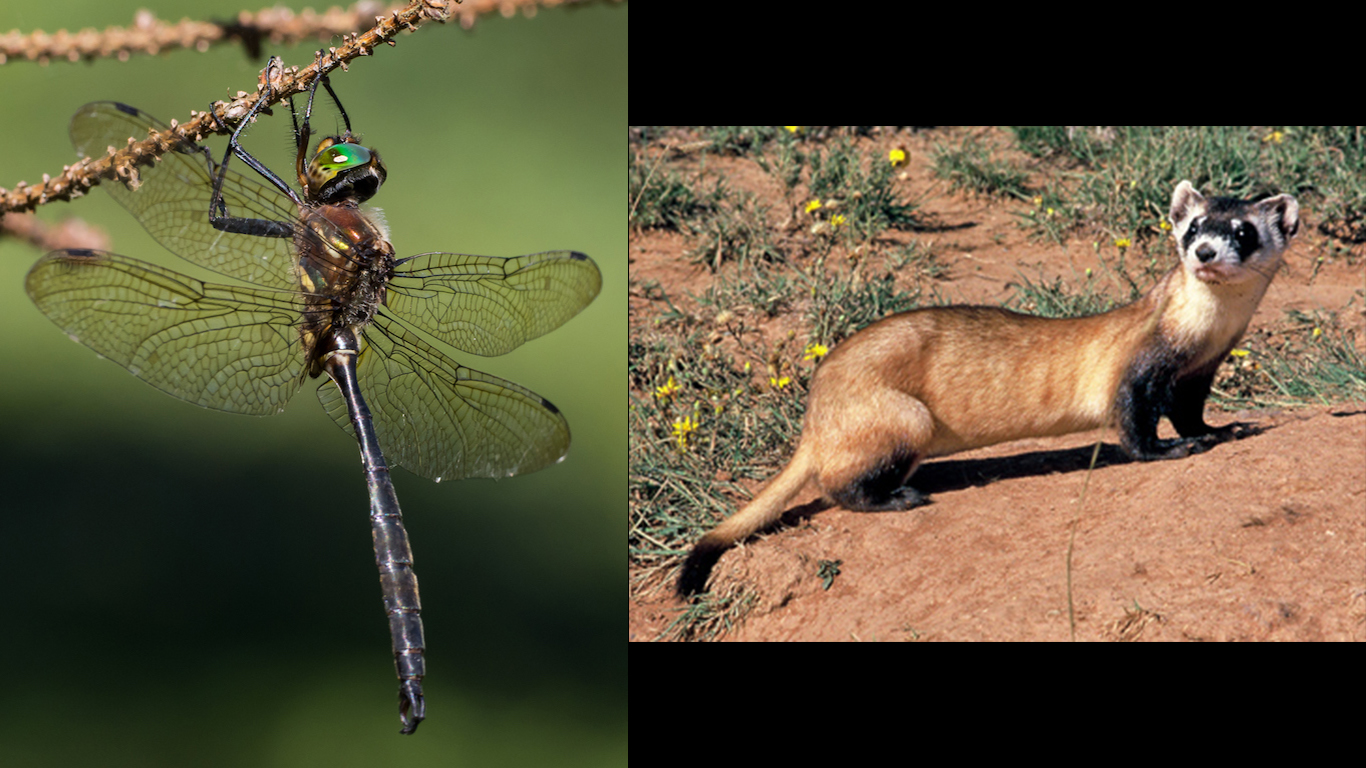
26. Montana
> Most threatened animal(s): Hine’s Emerald Dragonfly (somatochlora hineana), Black-Footed Ferret (mustela nigripes)
[in-text-ad]
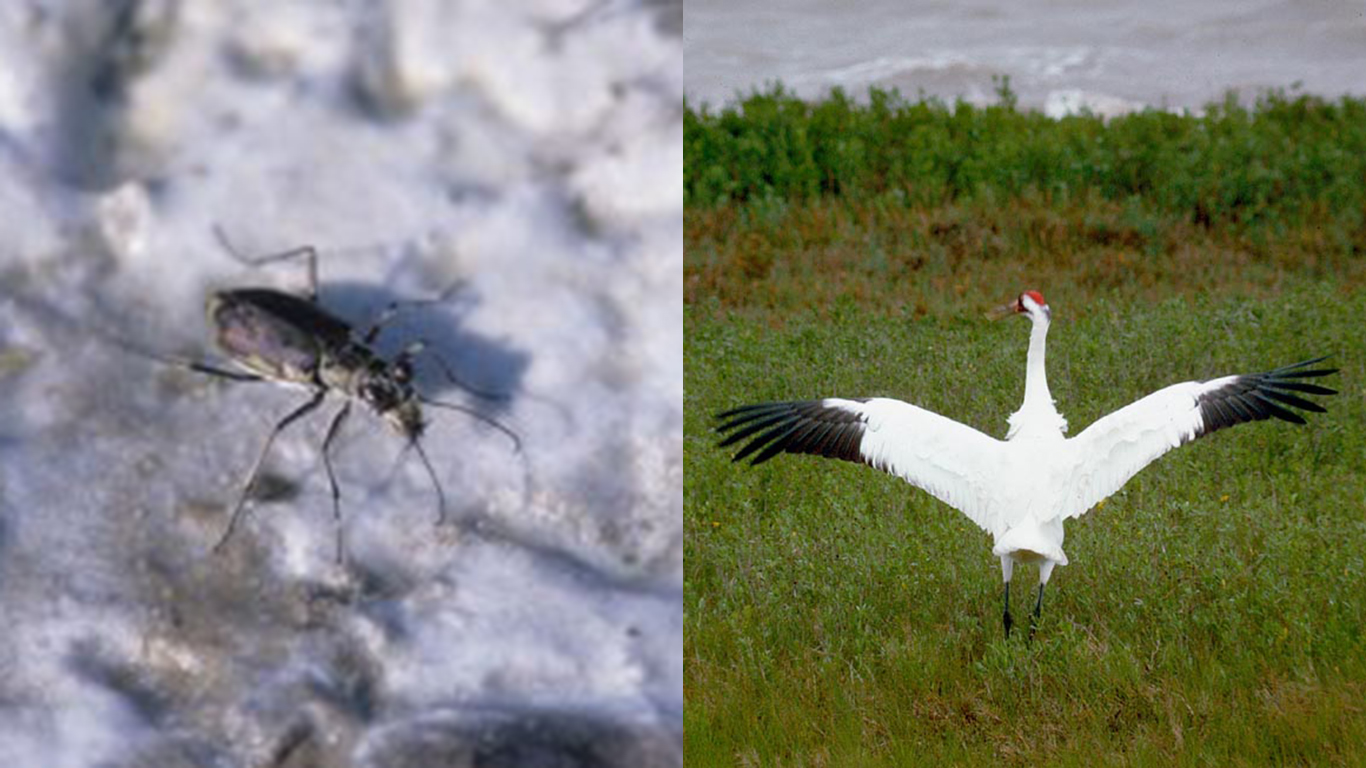
27. Nebraska
> Most threatened animal(s): Salt Creek Tiger Beetle (cicindela nevadica lincolniana), Whooping Crane (grus americana)
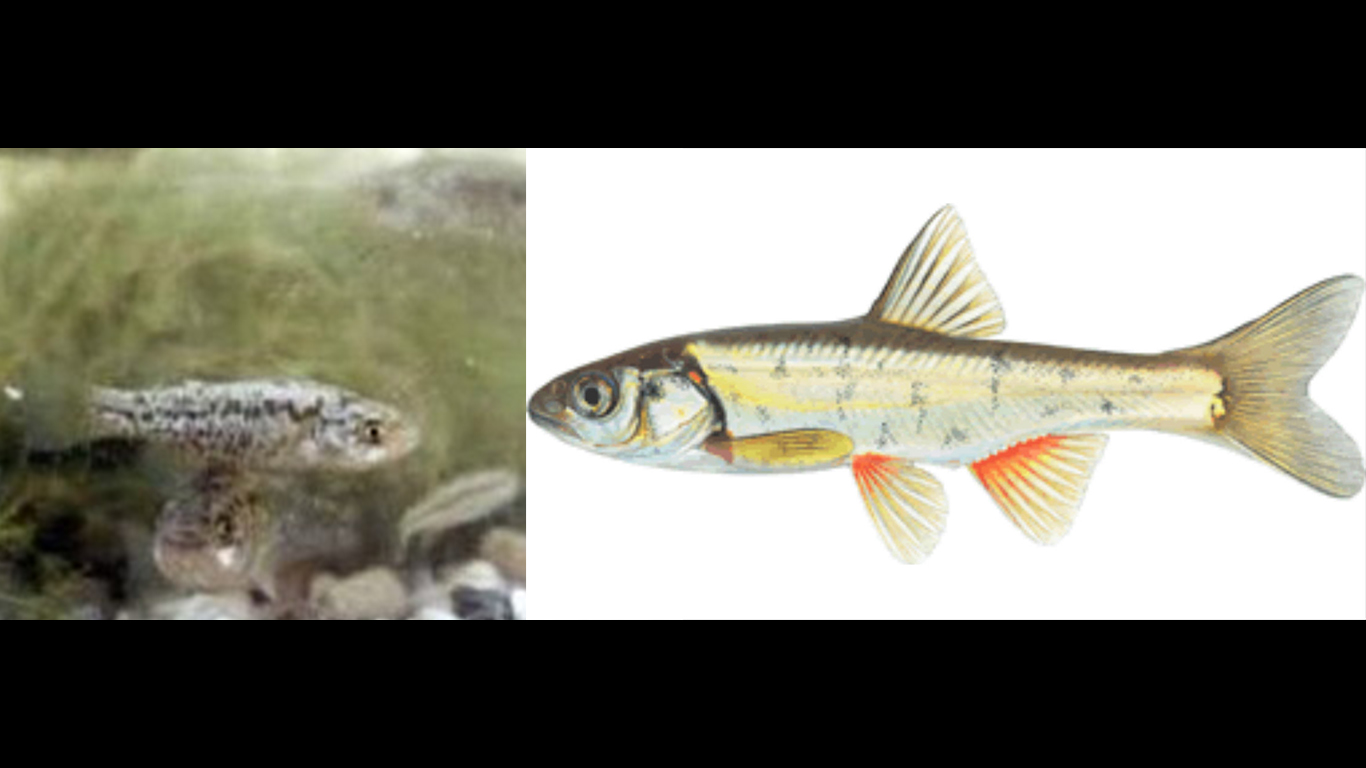
28. Nevada
> Most threatened animal(s): White River Spinedace (lepidomeda albivallis), Pahrump Poolfish (empetrichthys latos)
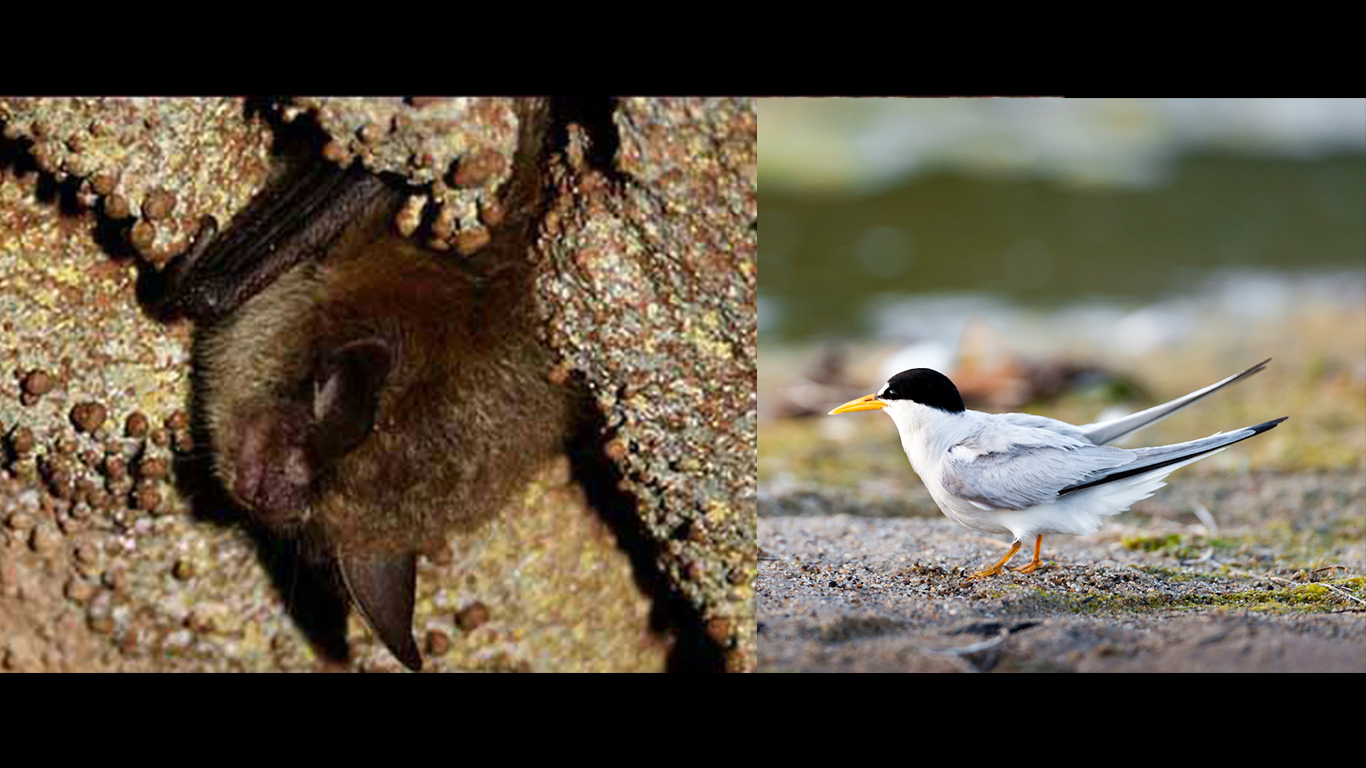
29. New Hampshire
> Most threatened animal(s): Least Tern (sterna antillarum), Northern Bat (myotis septentrionalis)
[in-text-ad-2]
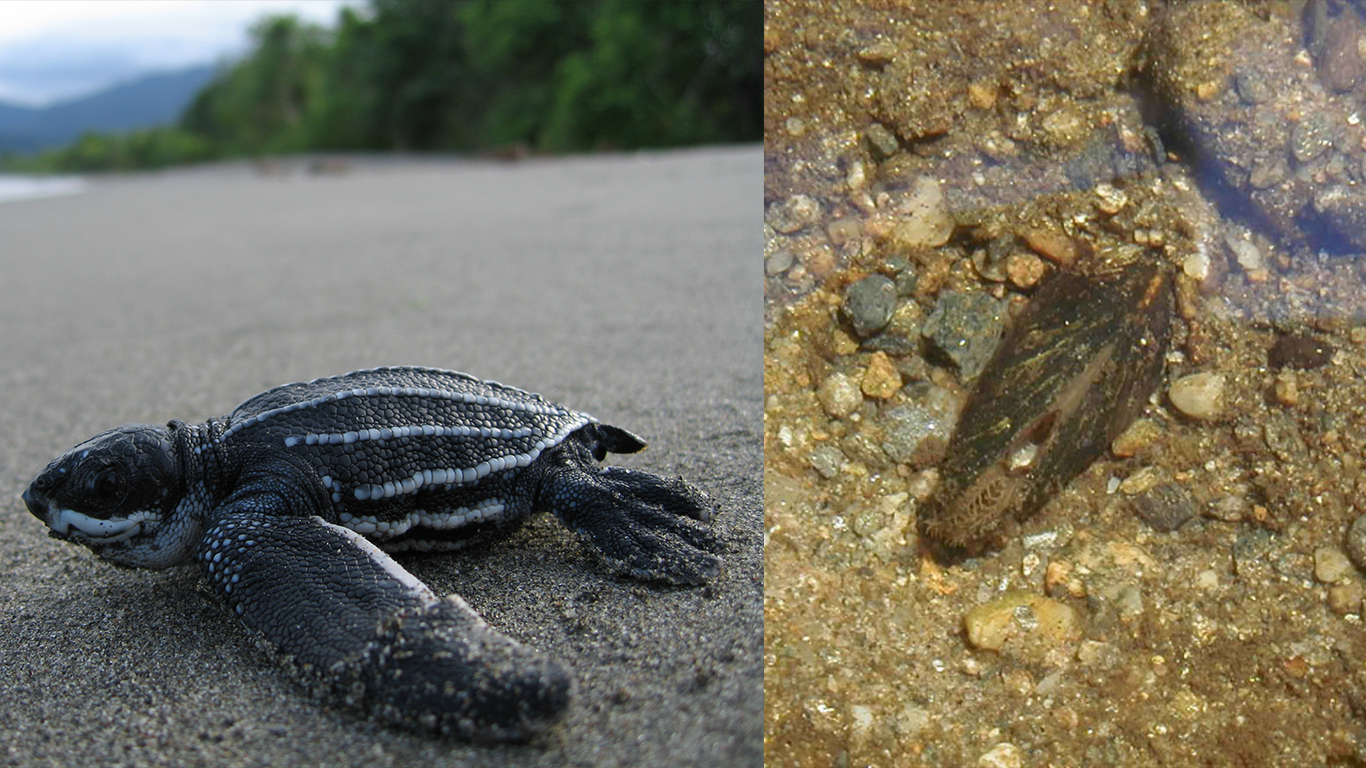
30. New Jersey
> Most threatened animal(s): Leatherback Sea Turtle (ermochelys coriacea), Dwarf Wedgemussel (alasmidonta heterodon)
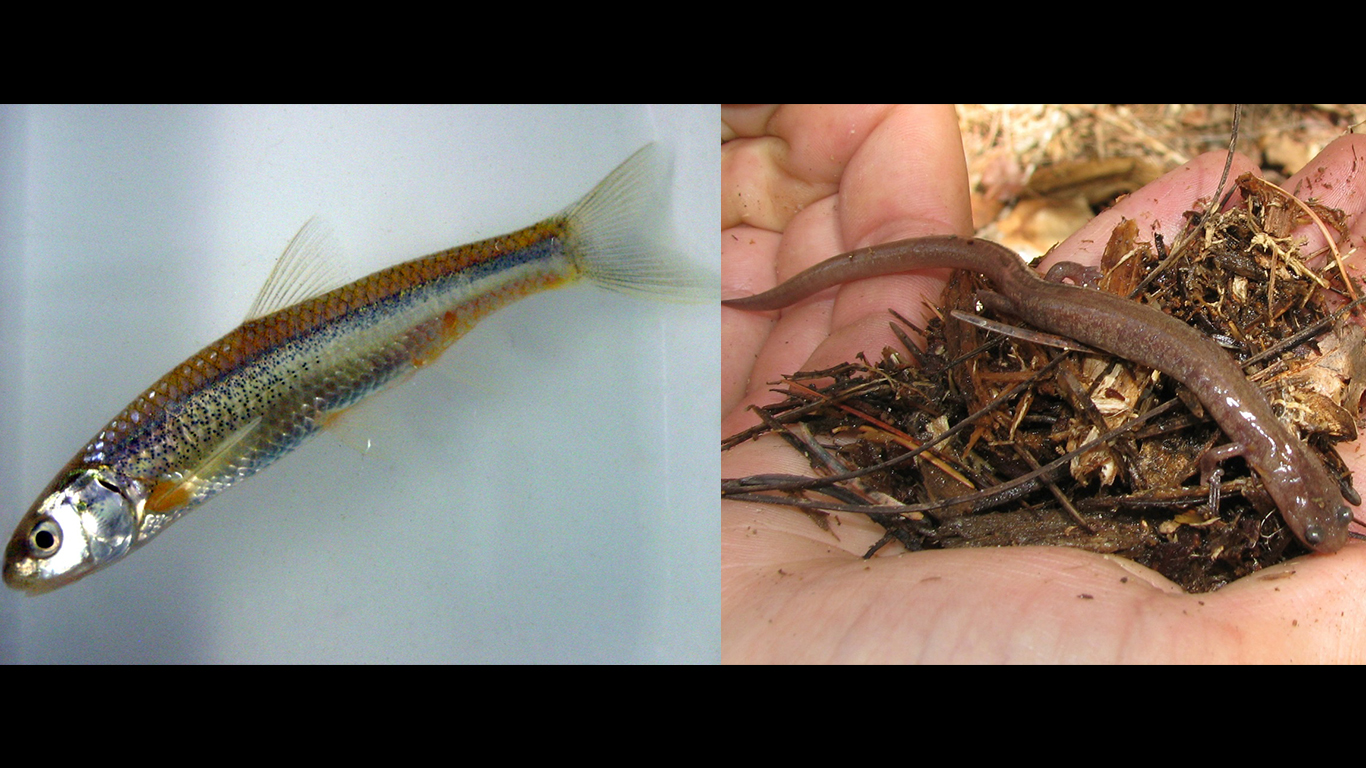
31. New Mexico
> Most threatened animal(s): Rio Grande Silvery Minnow (hybognathus amarus), Jemez Mountains Salamander (plethodon neomexicanus)
[in-text-ad]
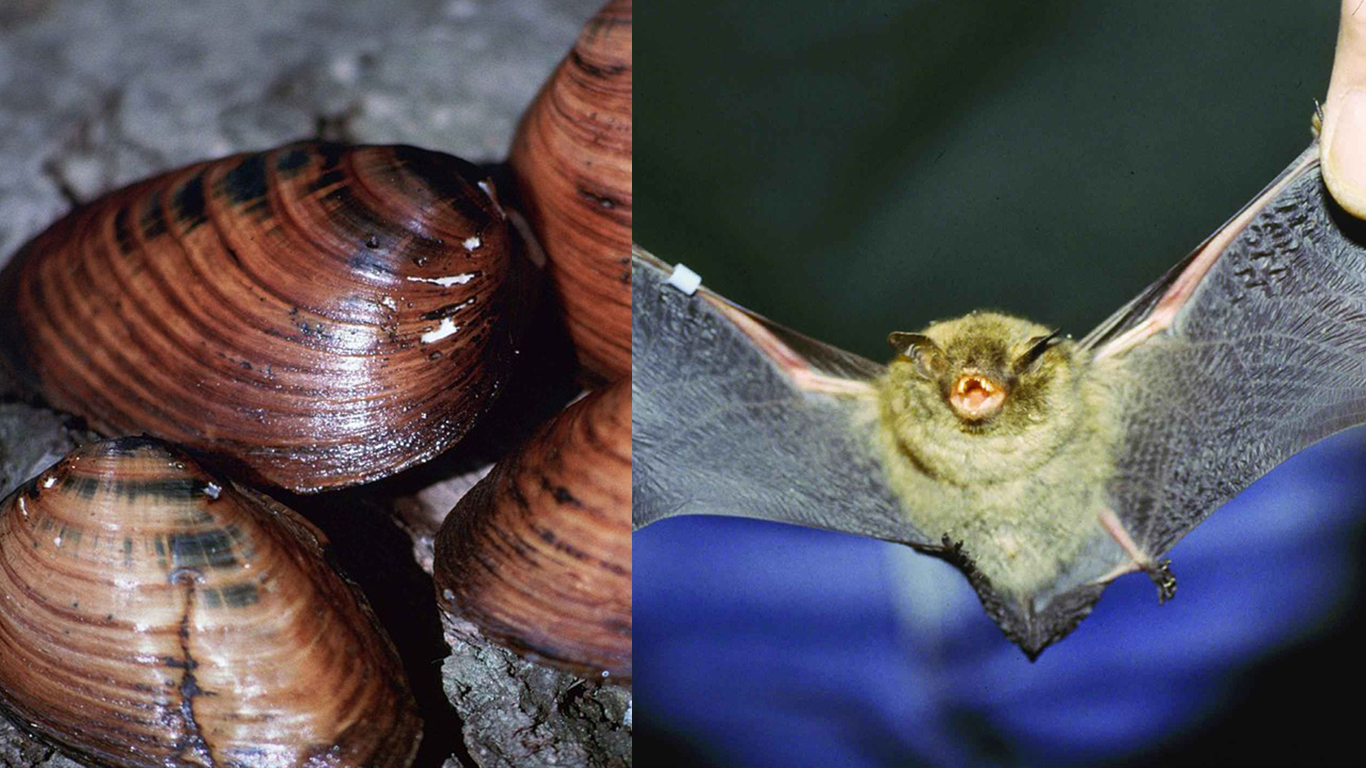
32. New York
> Most threatened animal(s): Clubshell (pleurobema clava), Indiana Bat (myotis sodalis)
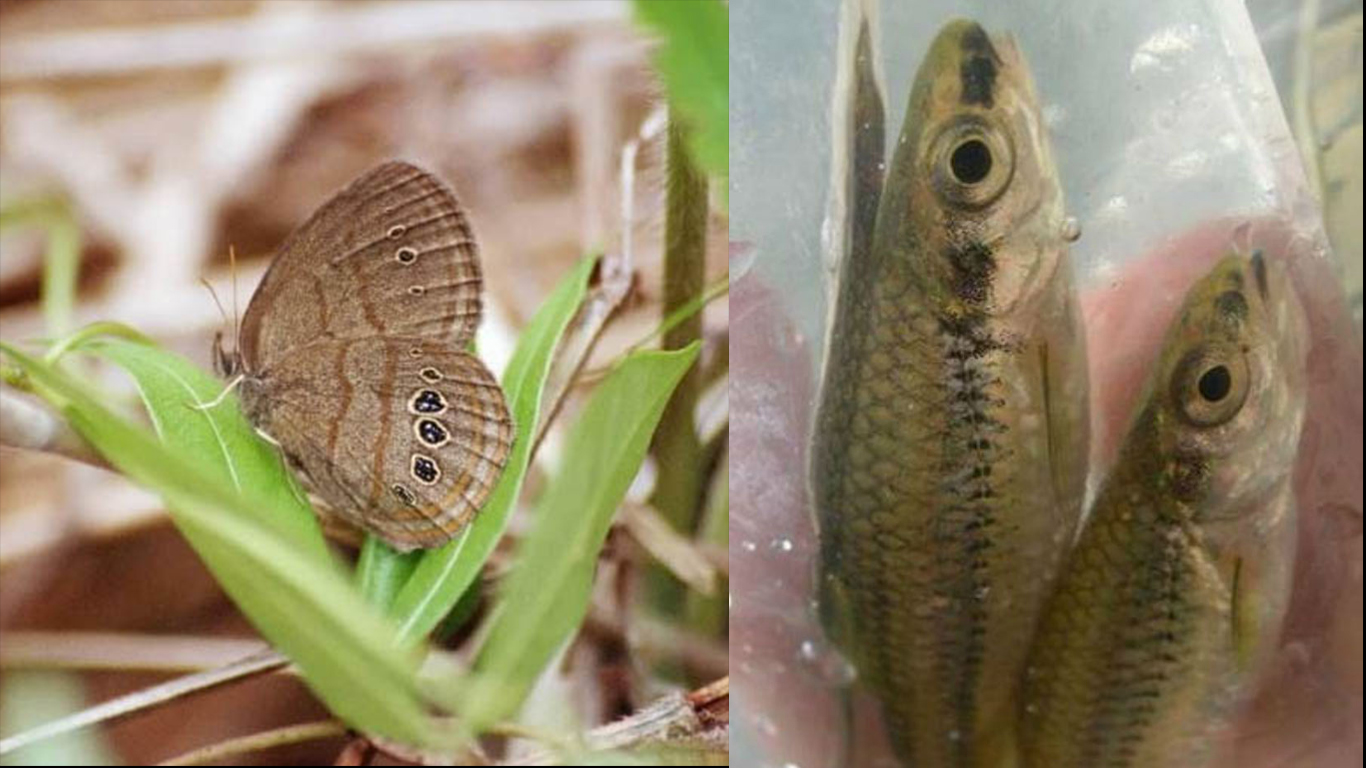
33. North Carolina
> Most threatened animal(s): Saint Francis’ Satyr Butterfly (neonympha mitchellii francisci), Cape Fear Shiner (notropis mekistocholas)
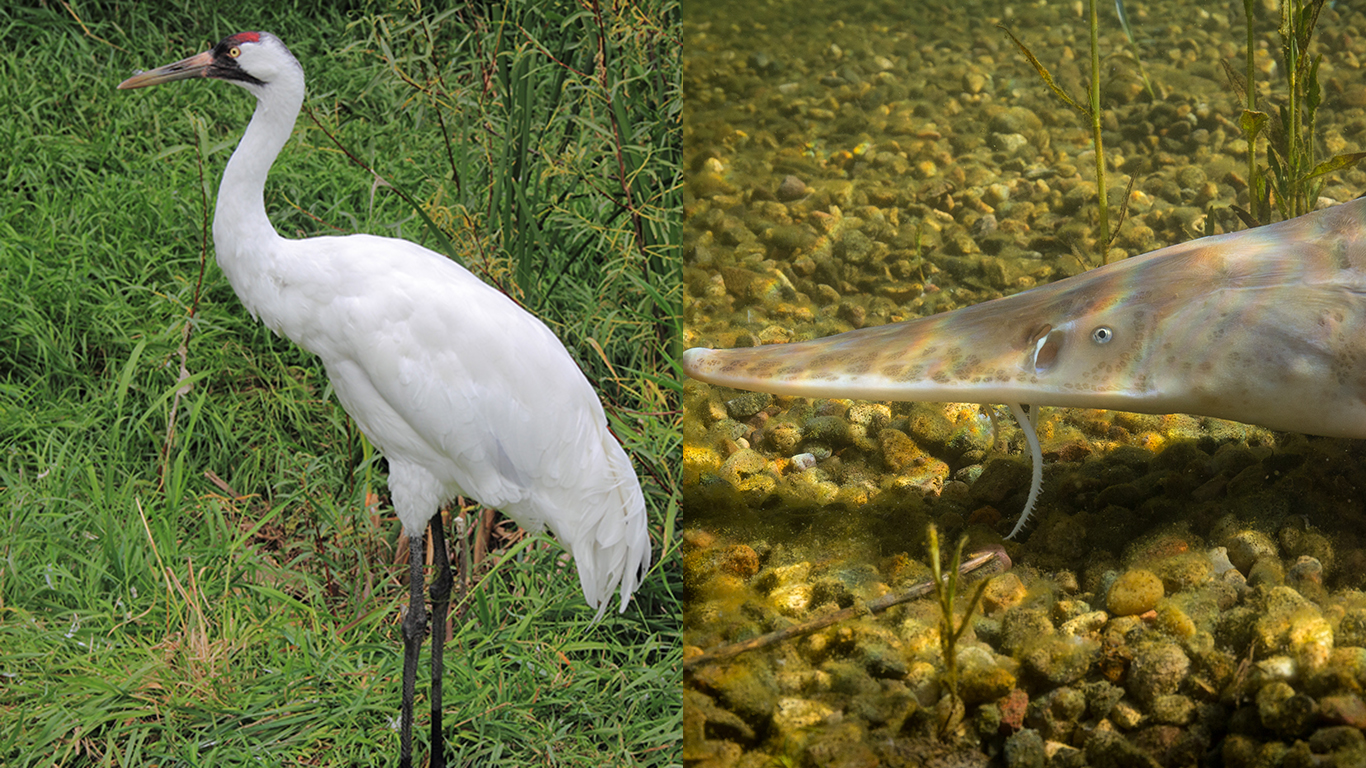
34. North Dakota
> Most threatened animal(s): Whooping Crane (grus americana), Pallid Sturgeon (scaphirhynchus albus)
[in-text-ad-2]
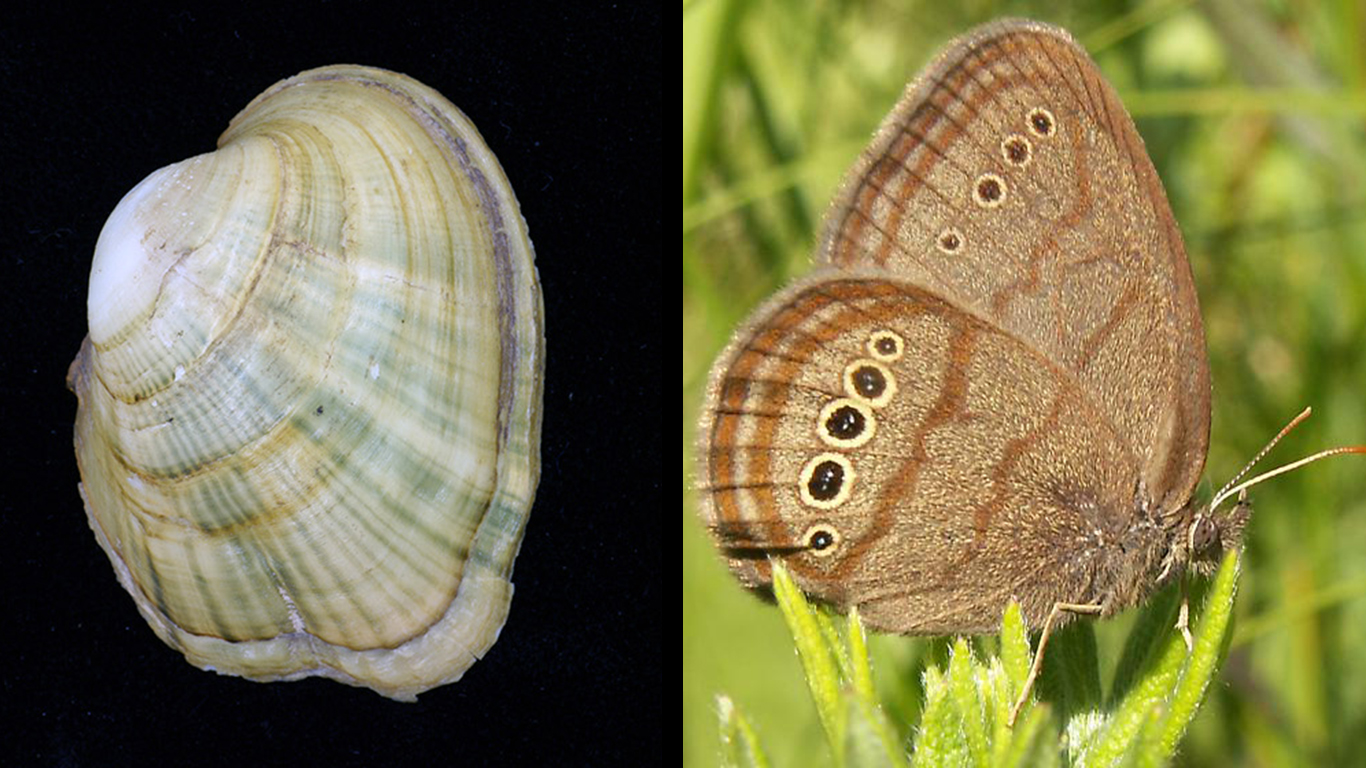
35. Ohio
> Most threatened animal(s): White Cat’s Paw (epioblasma obliquata perobliqua), Mitchell’s Satyr Butterfly (neonympha mitchellii mitchellii)
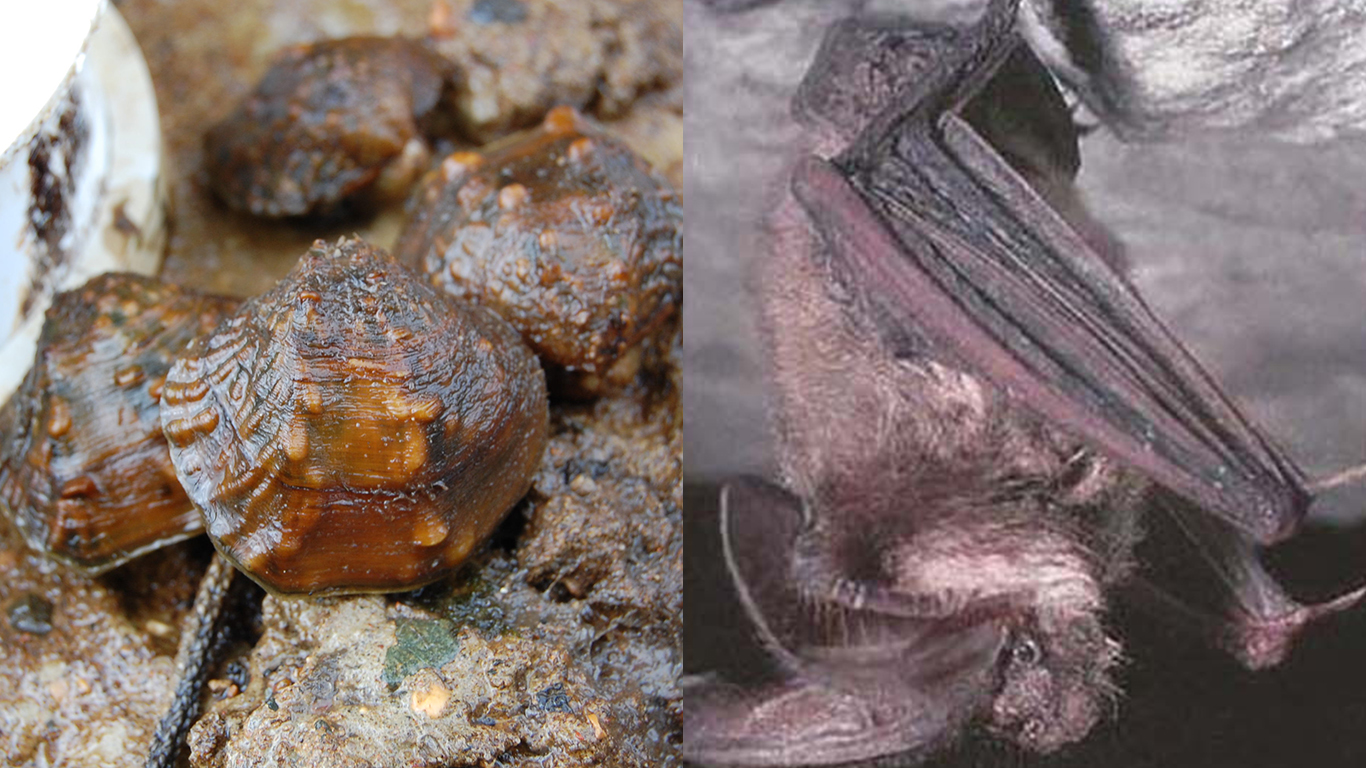
36. Oklahoma
> Most threatened animal(s): Ozark Big-Eared Bat (corynorhinus townsendii ingens), Winged Mapleleaf (quadrula fragosa)
[in-text-ad]
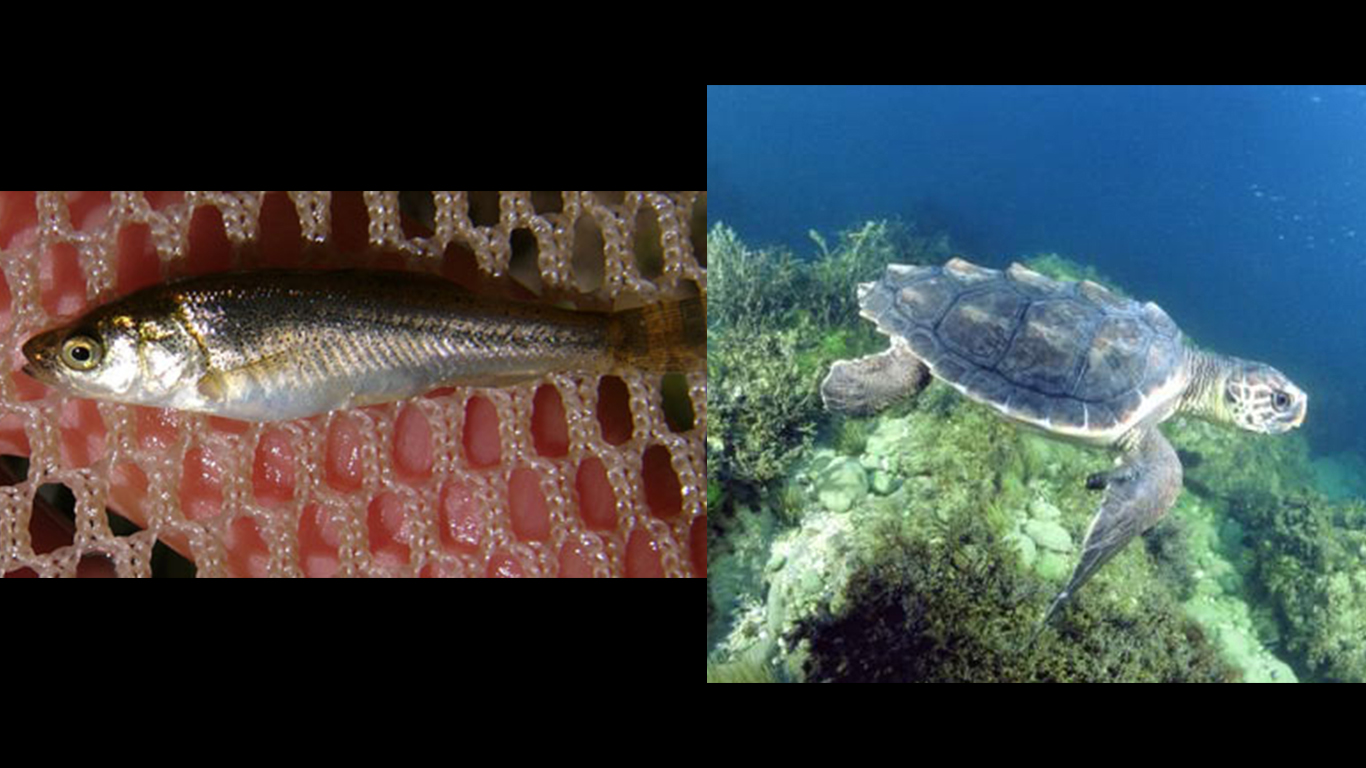
37. Oregon
> Most threatened animal(s): Borax Lake Chub (gila boraxobius), Loggerhead Sea Turtle (caretta caretta)
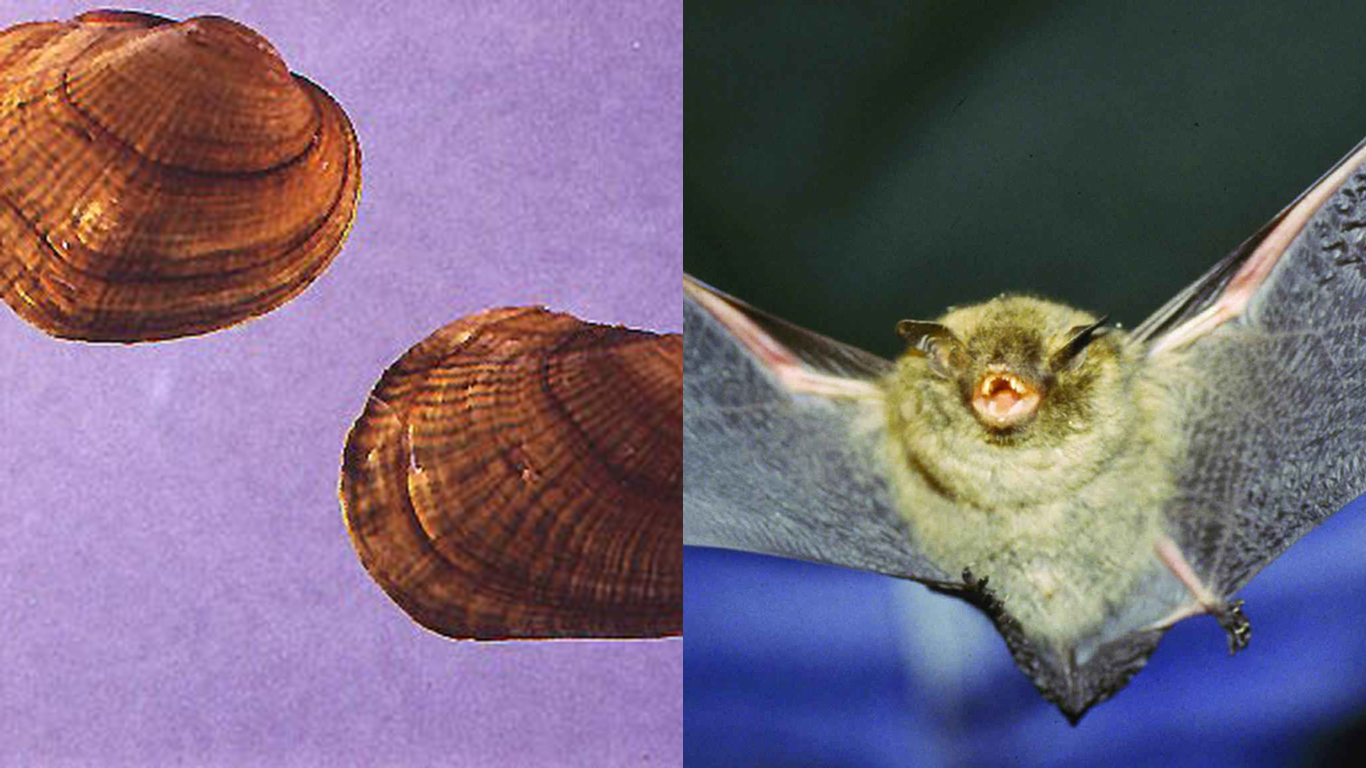
38. Pennsylvania
> Most threatened animal(s): Indiana Bat (myotis sodalis), Northern Riffleshell (epioblasma torulosa rangiana)
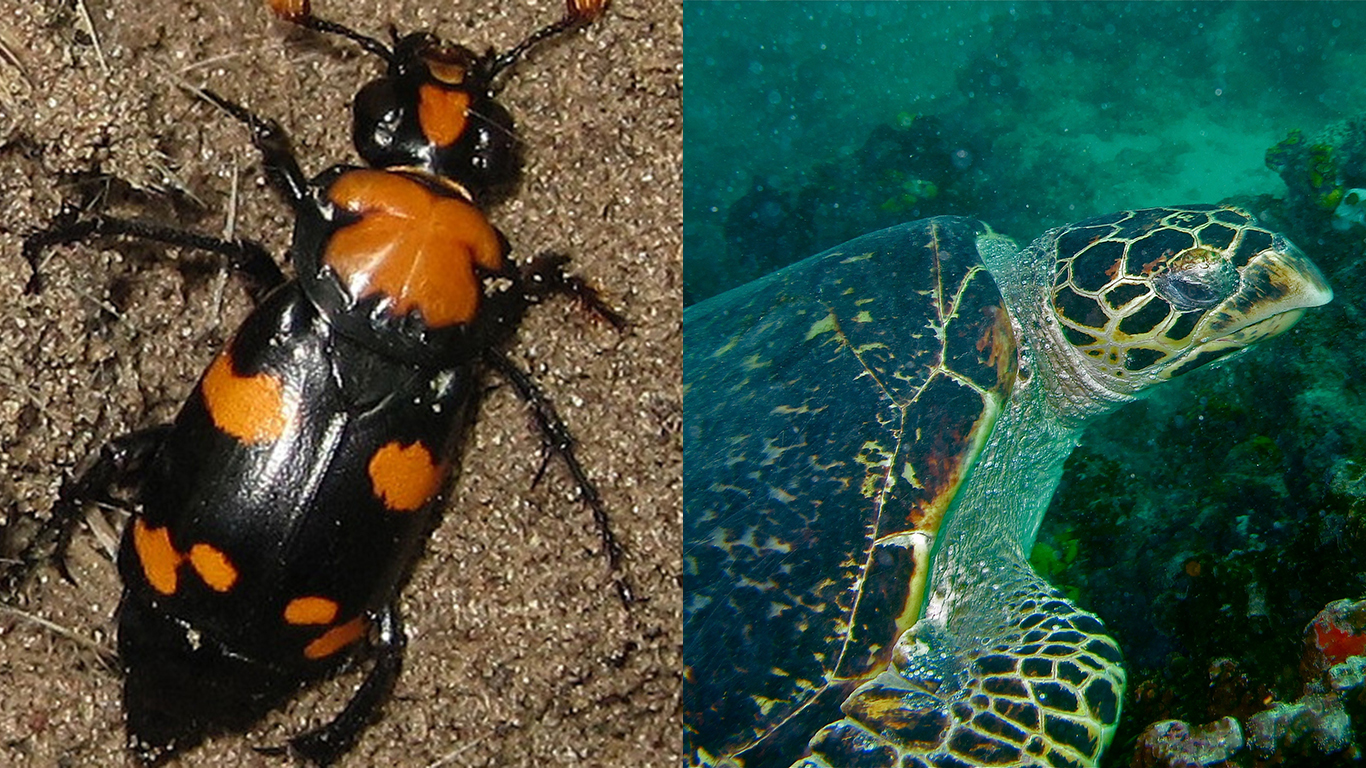
39. Rhode Island
> Most threatened animal(s): American Burying Beetle (nicrophorus americanus), Hawksbill Sea Turtle (eretmochelys imbricata)
[in-text-ad-2]
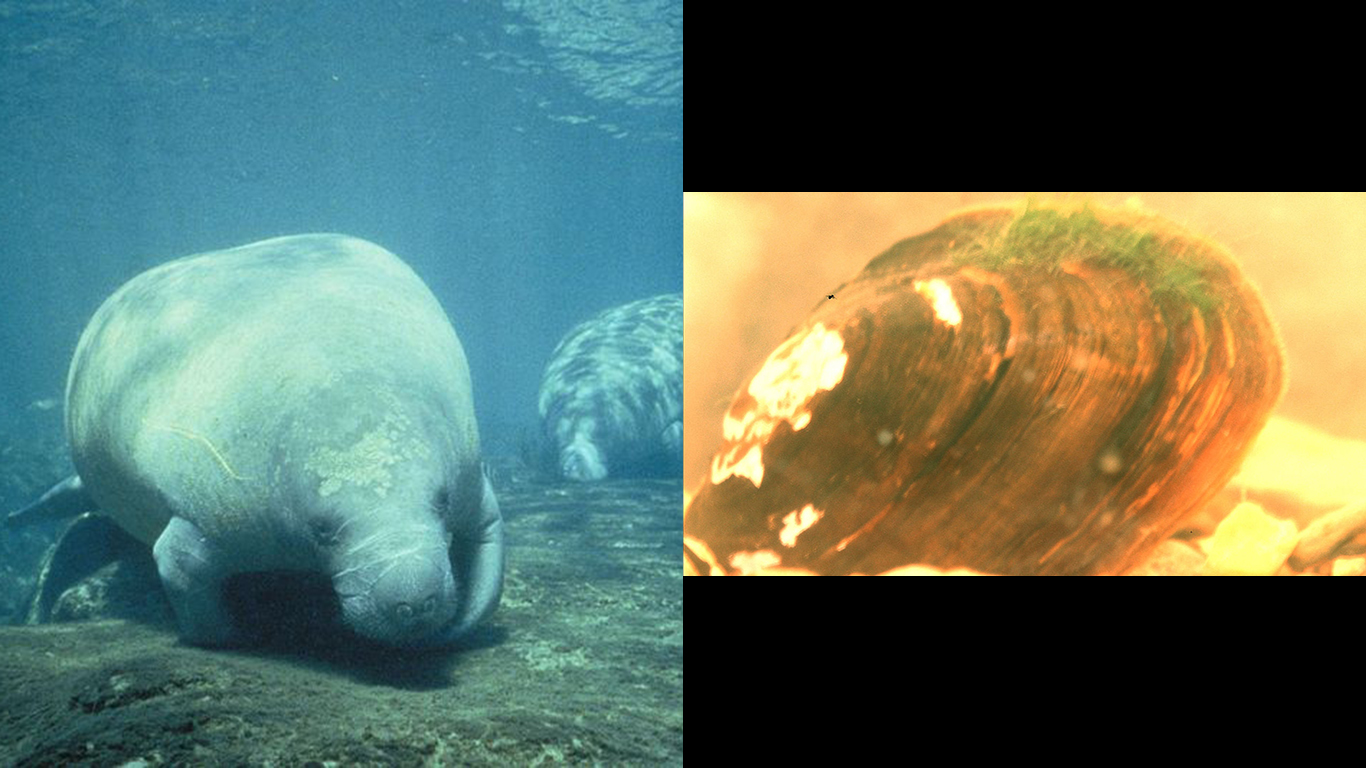
40. South Carolina
> Most threatened animal(s): Carolina Heelsplitter (lasmigona decorata), West Indian Manatee (trichechus manatus)
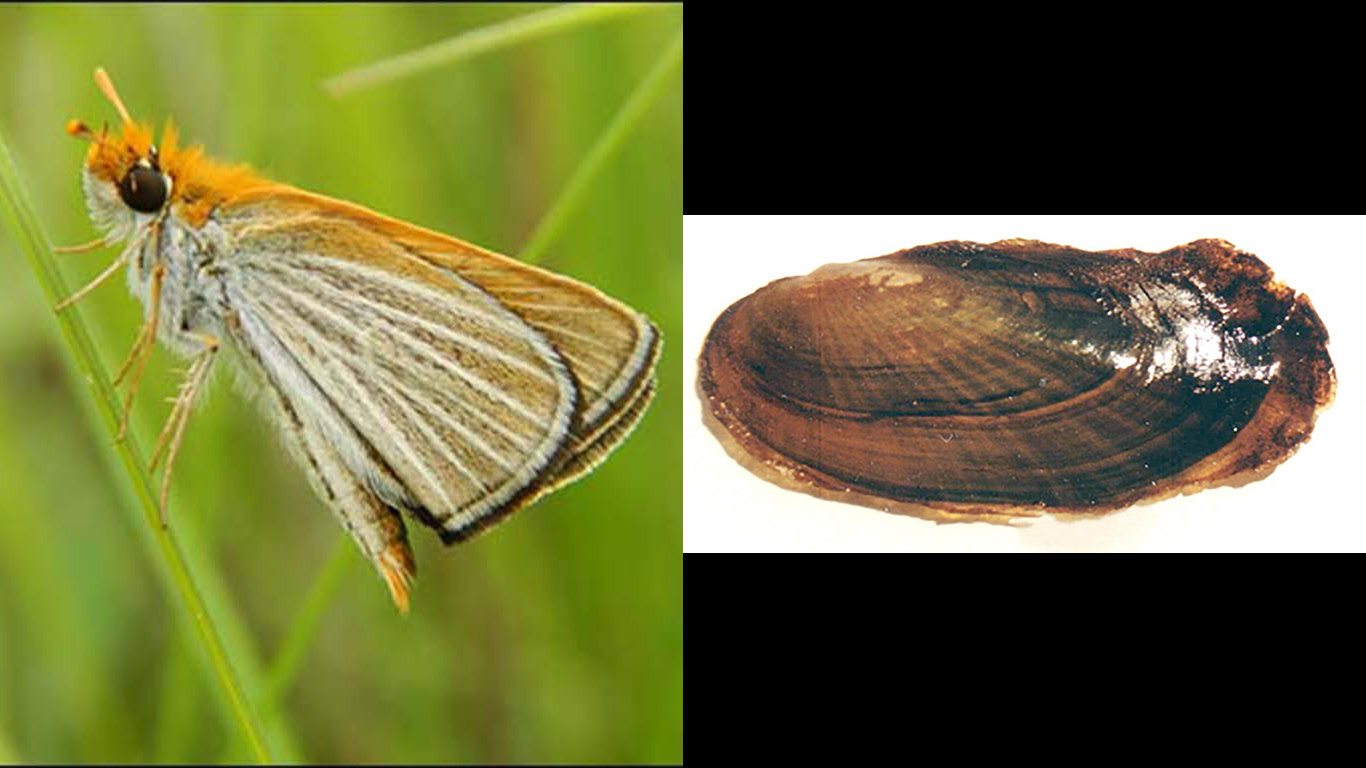
41. South Dakota
> Most threatened animal(s): Poweshiek Skipperling (oarisma poweshiek), Scaleshell Mussel (leptodea leptodon)
[in-text-ad]
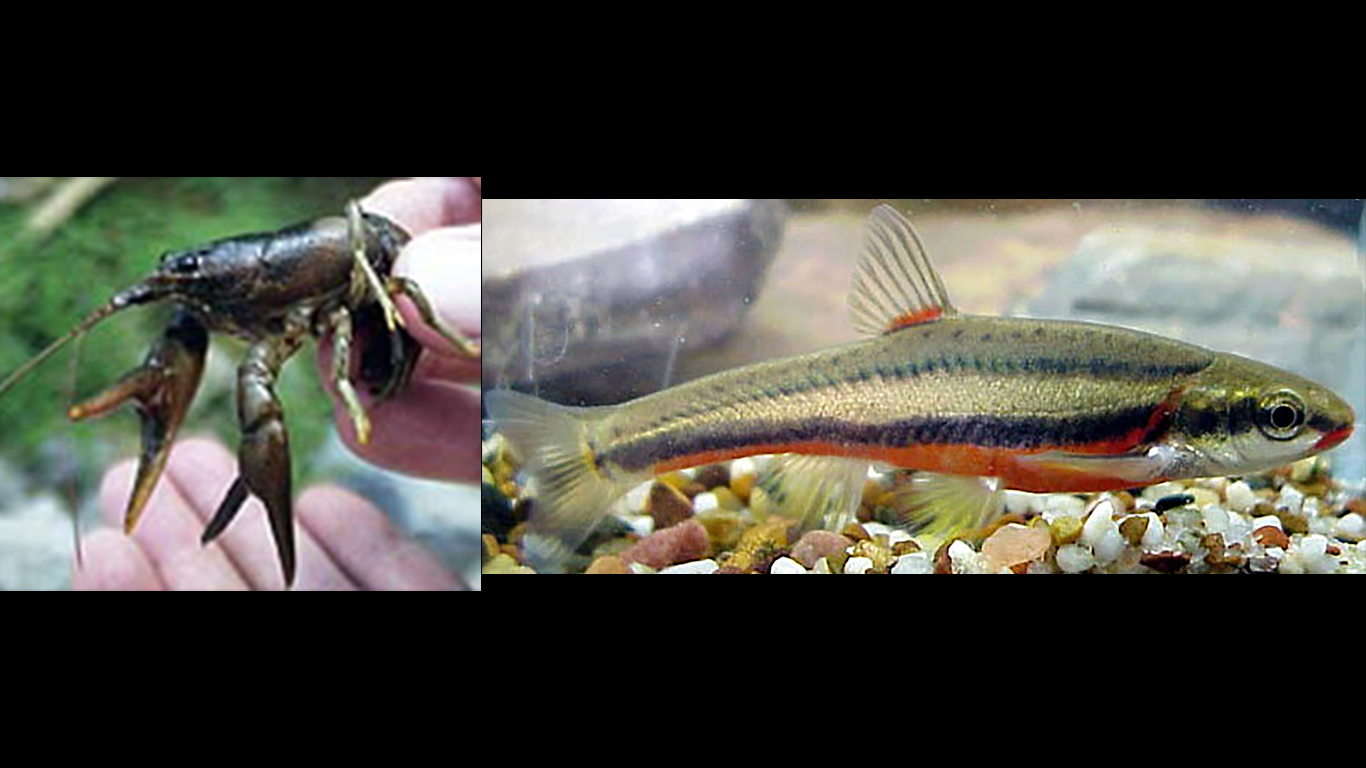
42. Tennessee
> Most threatened animal(s): Nashville Crayfish (orconectes shoupi), Laurel Dace (chrosomus saylori)
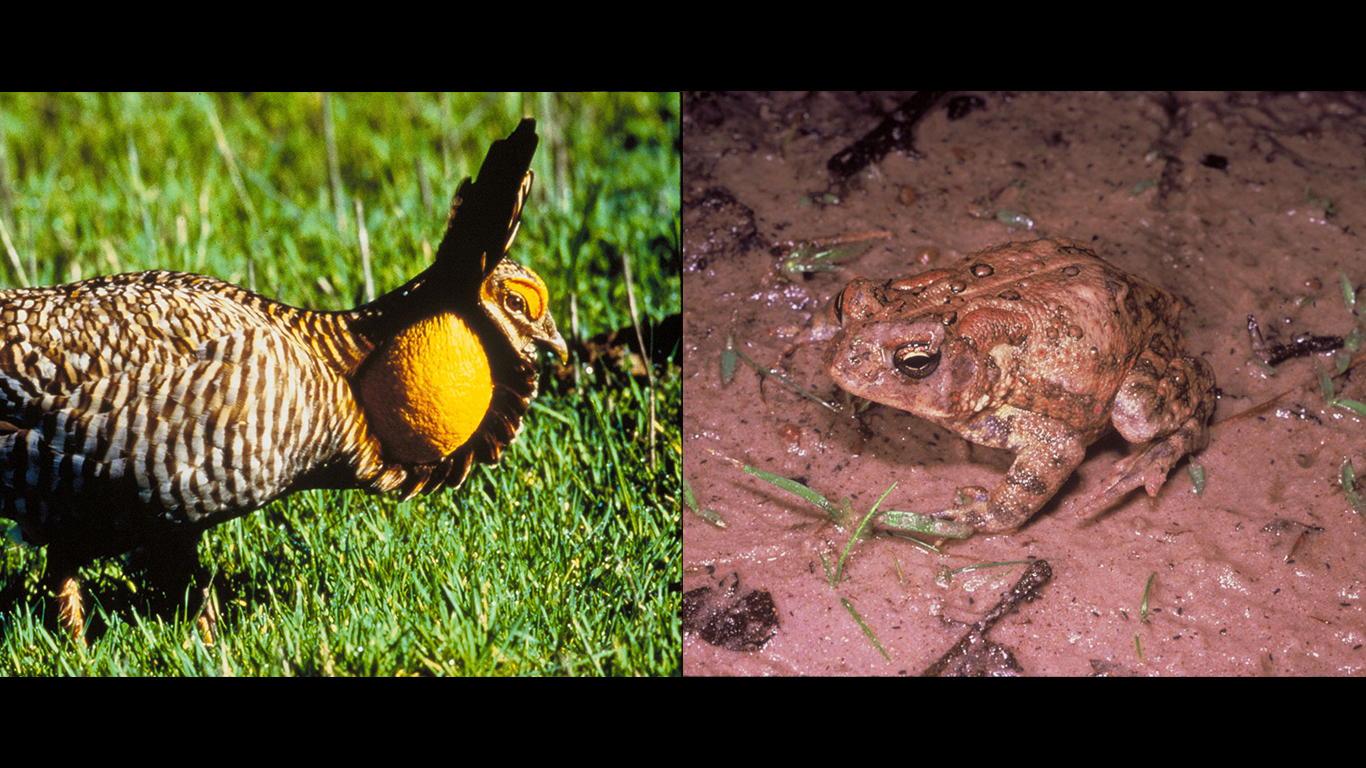
43. Texas
> Most threatened animal(s): Attwater’s Prairie-Chicken (tympanuchus cupido attwateri), Houston Toad (bufo houstonensis)
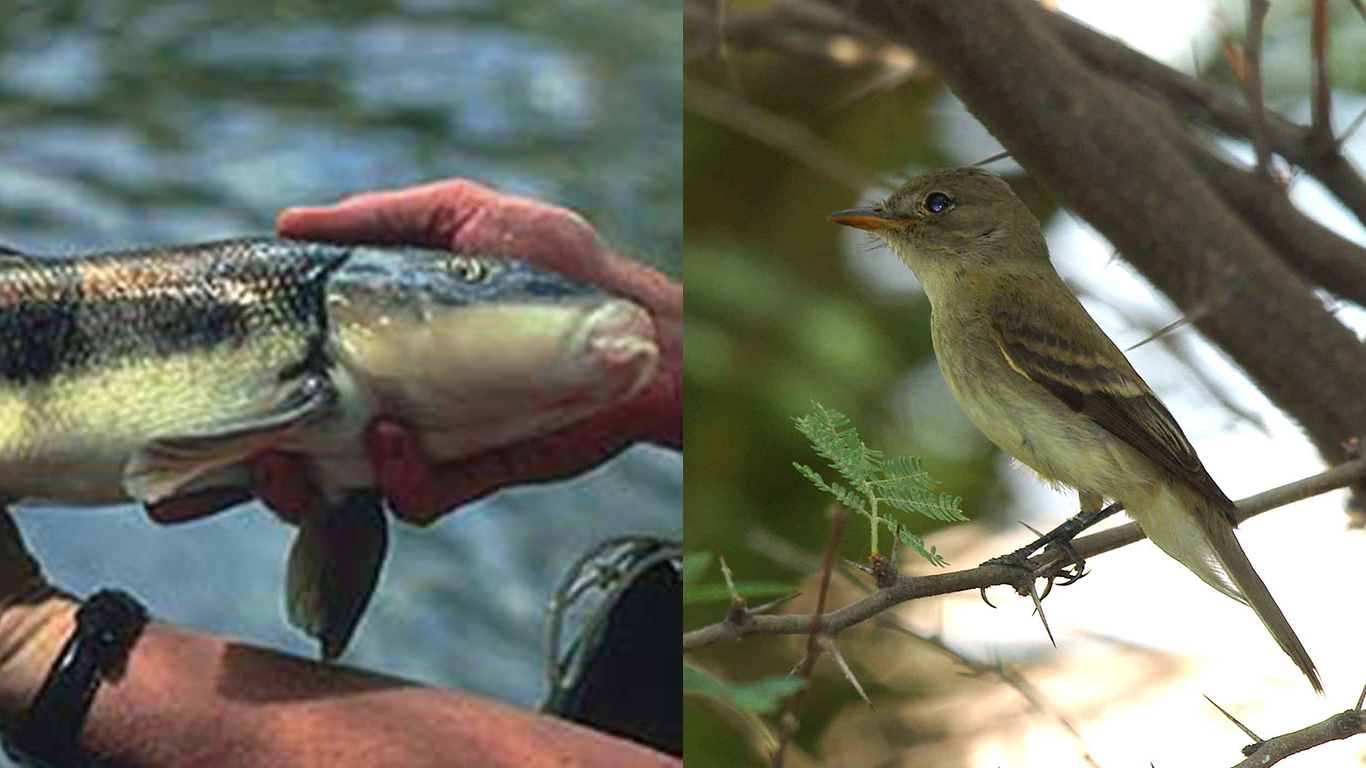
44. Utah
> Most threatened animal(s): June Sucker (chasmistes liorus), Southwestern Willow Flycatcher (empidonax traillii extimus)
[in-text-ad-2]
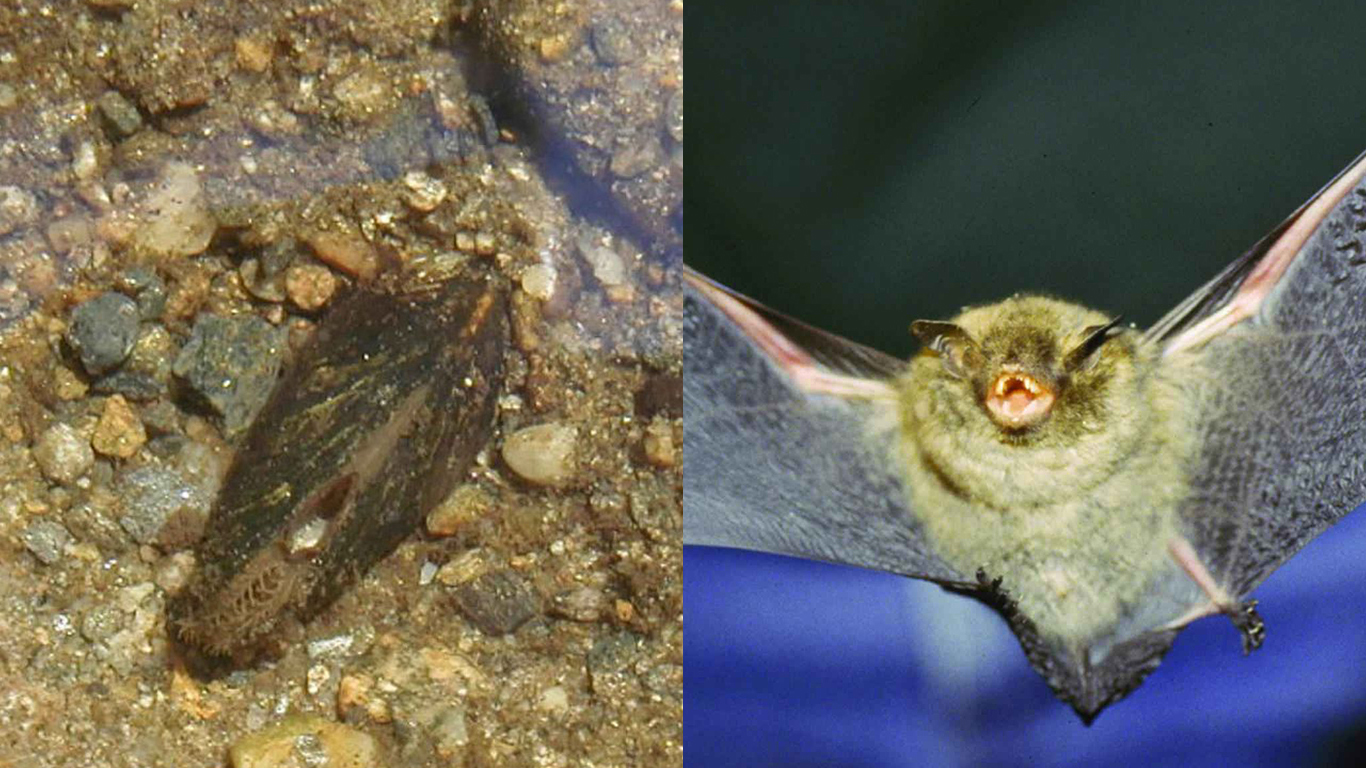
45. Vermont
> Most threatened animal(s): Dwarf Wedgemussel (alasmidonta heterodon), Indiana Bat (myotis sodalis)
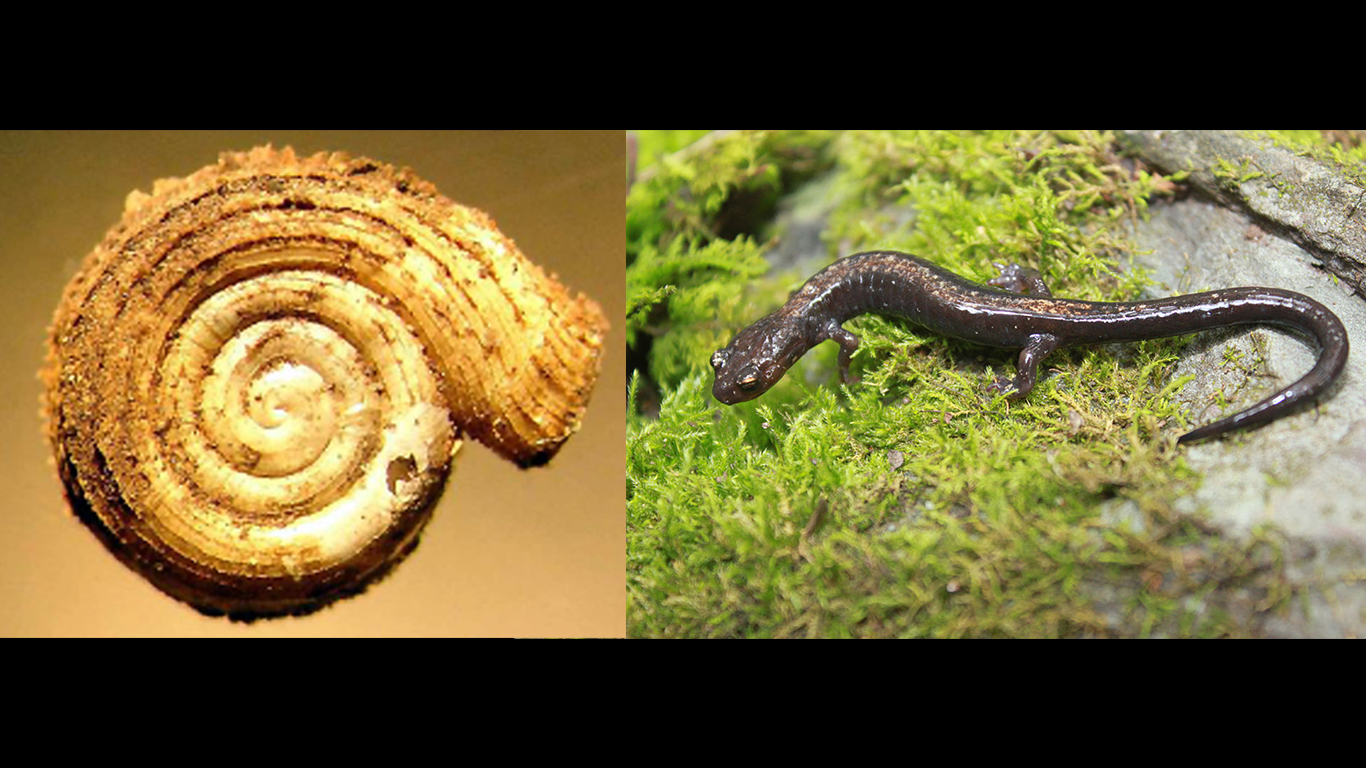
46. Virginia
> Most threatened animal(s): Shenandoah Salamander (plethodon shenandoah), Virginia Fringed Mountain Snail (polygyriscus virginianus)
[in-text-ad]
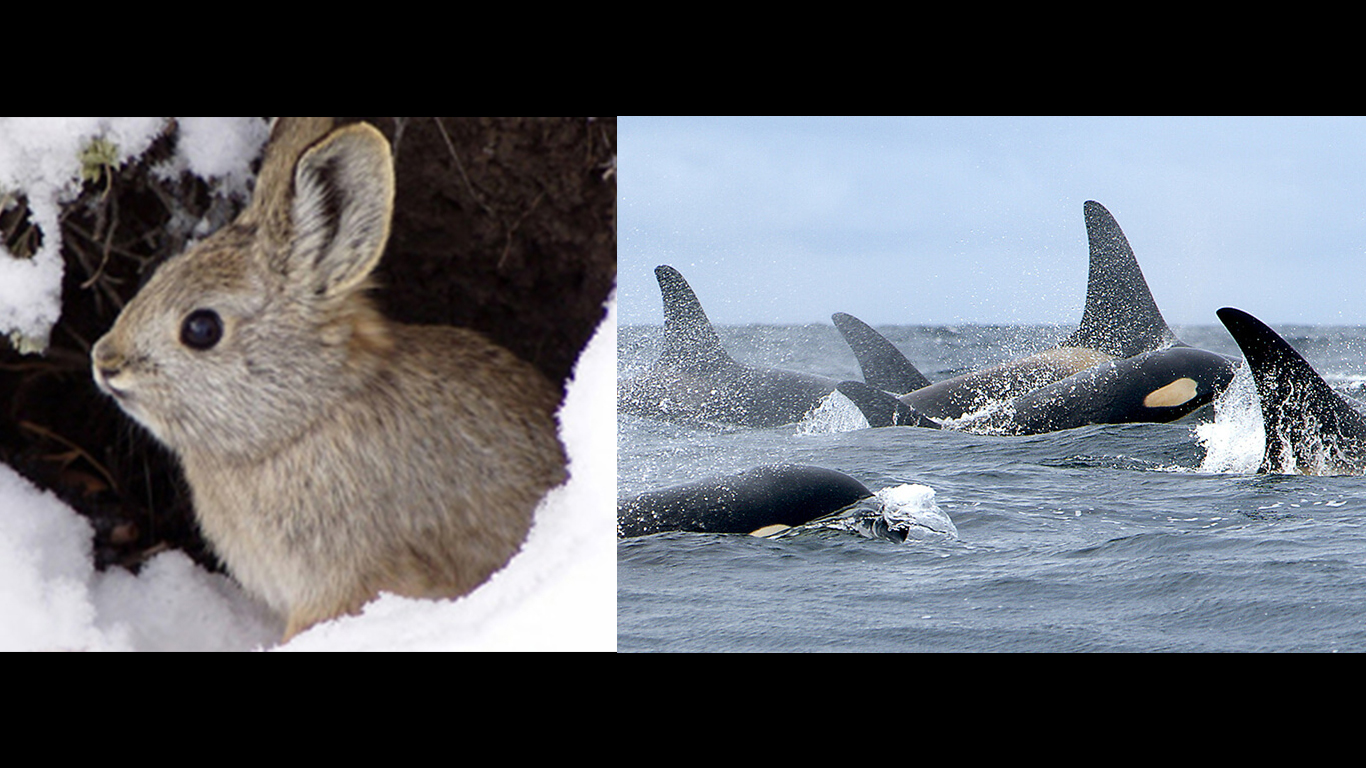
47. Washington
> Most threatened animal(s): Columbia Basin Pygmy Rabbit (brachylagus idahoensis), Killer Whale (orcinus orca)
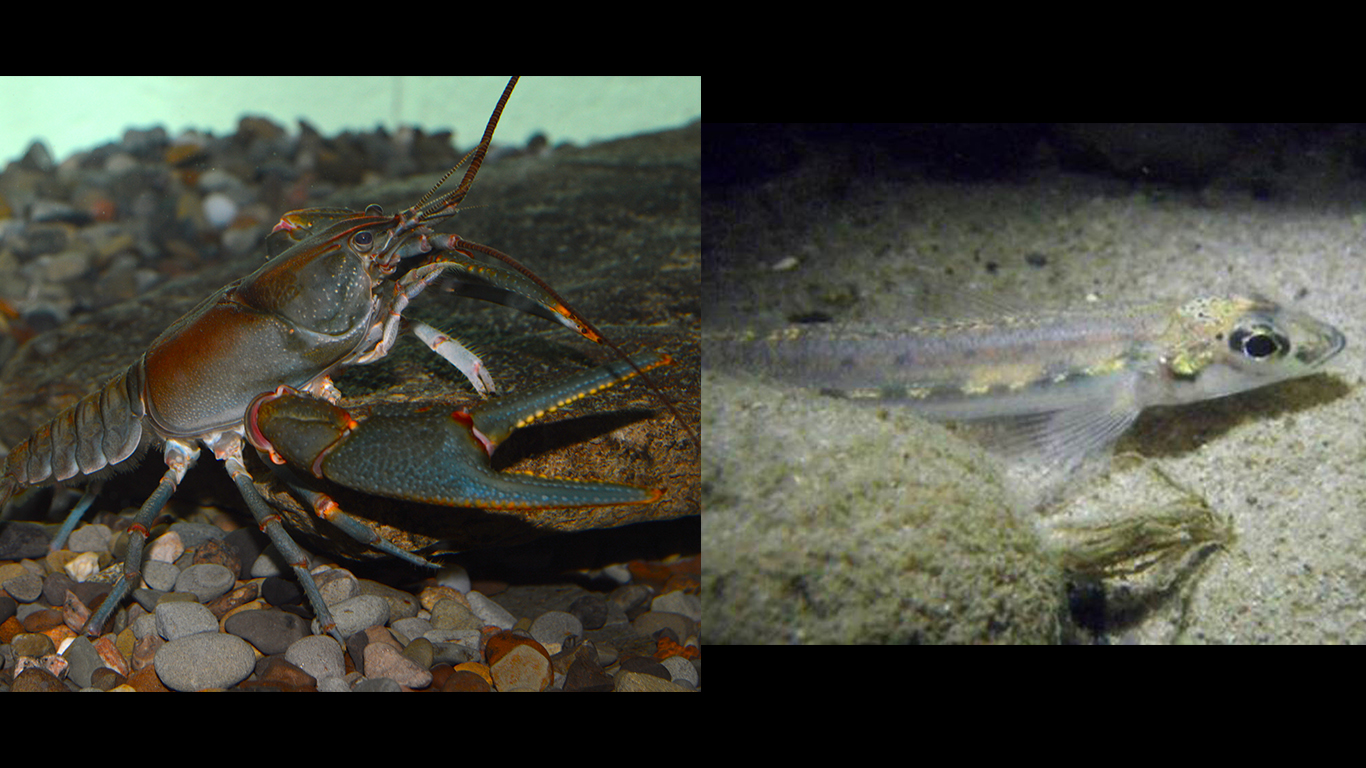
48. West Virginia
> Most threatened animal(s): Guyandotte River Crayfish (cambarus veteranus), Diamond Darter (crystallaria cincotta)
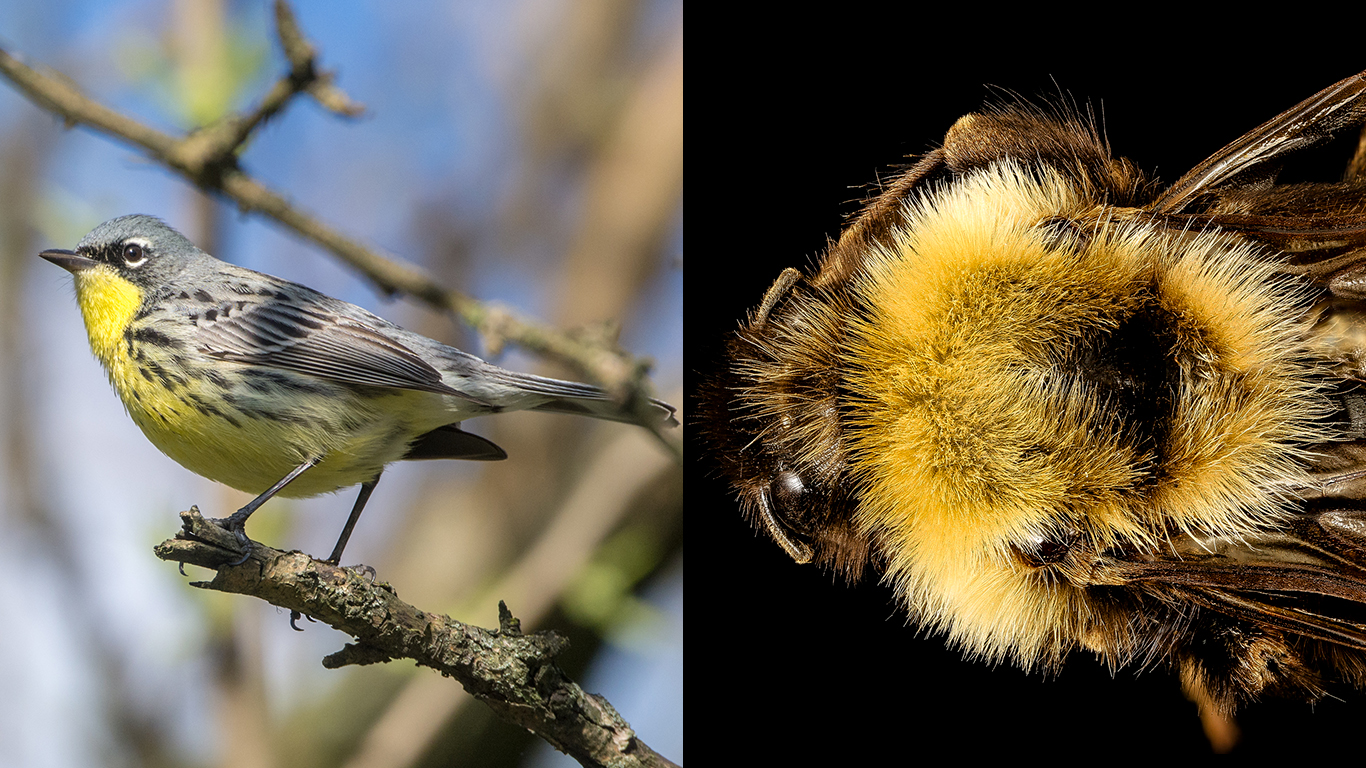
49. Wisconsin
> Most threatened animal(s): Rusty Patched Bumble Bee (bombus affinis), Kirtland’s Warbler (setophaga kirtlandii)
[in-text-ad-2]
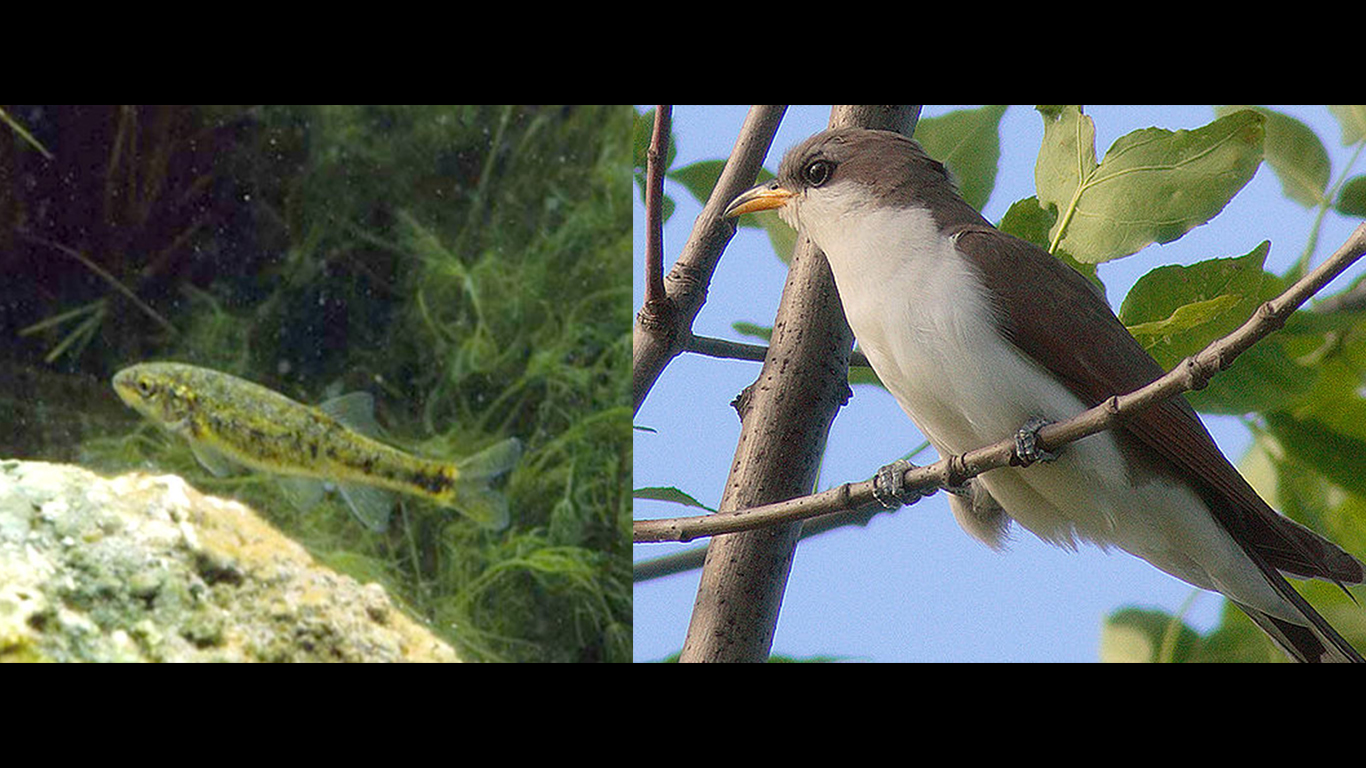
50. Wyoming
> Most threatened animal(s): Kendall Warm Springs Dace (rhinichthys osculus thermalis), Yellow-Billed Cuckoo (coccyzus americanus)
Detailed Findings & Methodology
Since the passage of the endangered species legislation, some animals have made a comeback. These include the American alligators, brown pelicans, eastern Steller sea lions, and the nation’s symbol, the bald eagle.
The road to preserving the nation’s endangered species is long. Even with more than four decades of legislated protection for endangered animals, the U.S. is ranked second worldwide in the number of endangered species by country, with about 1,500 domestic species threatened, according to the Mother Nature Network website.
The number of endangered species varies by state. Hawaii accounts for about 0.2% of the U.S. land area, but it is home to 25% of the federally endangered species, according to the Mother Nature Network. Among animals at risk in Hawaii is the Hawaiian monk seal, one of Earth’s most endangered animals. There are only about 1,000 in existence.
As one might expect, there are various species of sea turtles, rabbits, and cranes on this list. More generally, it includes mammals, marine animals, fish, insects, birds, amphibians, reptiles, and more. Some are more well known, like species of bats, butterfly, and salmon, while others are less known, like species of amphipod and limpet.
Included among the animals most at risk are different species of mollusks such as the spectaclecase, a freshwater mussel. Mollusks are often threatened because of dams, which disrupt water flow patterns and change water temperature. Losses of mollusks imperil the ecosystem because they are a food source for fish, and they recycle plant and animal waste that helps keep water clean.
To identify the most threatened animals in every state, 24/7 Wall St. reviewed the U.S. Fish and Wildlife Service’s listing of endangered animals in the United States. Many of the endangered animals are not unique to one state but are threatened in a great number of states. Only 31 states have animals endangered only there. To find which of the threatened animals in these 31 states are most endangered, we turned to the International Union for Conservation of Nature’s inventory of threatened species. Many of the most threatened animals listed here were found to be “critically endangered” on the IUCN’s Red List. We used this same approach to evaluate the threat level of endangered animals in the remaining 19 states, but in these cases animals may be listed as endangered in other states as well.
The thought of burdening your family with a financial disaster is most Americans’ nightmare. However, recent studies show that over 100 million Americans still don’t have proper life insurance in the event they pass away.
Life insurance can bring peace of mind – ensuring your loved ones are safeguarded against unforeseen expenses and debts. With premiums often lower than expected and a variety of plans tailored to different life stages and health conditions, securing a policy is more accessible than ever.
A quick, no-obligation quote can provide valuable insight into what’s available and what might best suit your family’s needs. Life insurance is a simple step you can take today to help secure peace of mind for your loved ones tomorrow.
Click here to learn how to get a quote in just a few minutes.
Thank you for reading! Have some feedback for us?
Contact the 24/7 Wall St. editorial team.